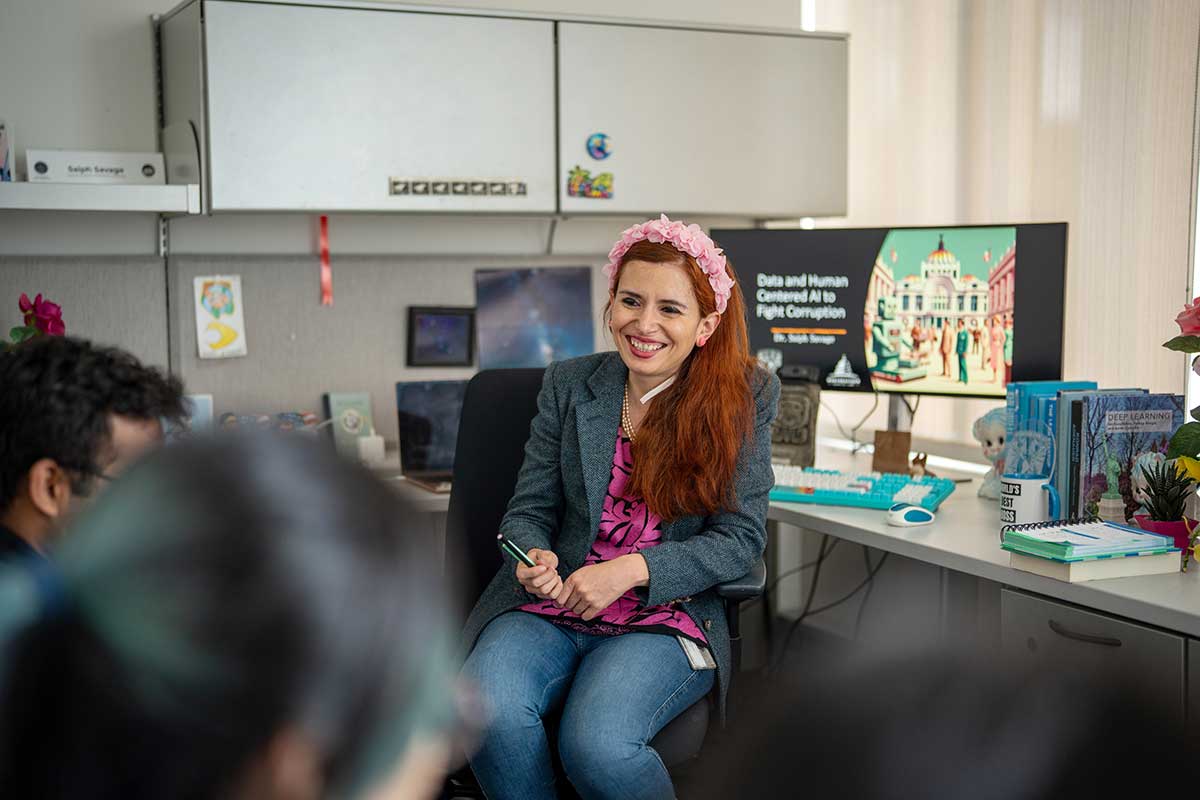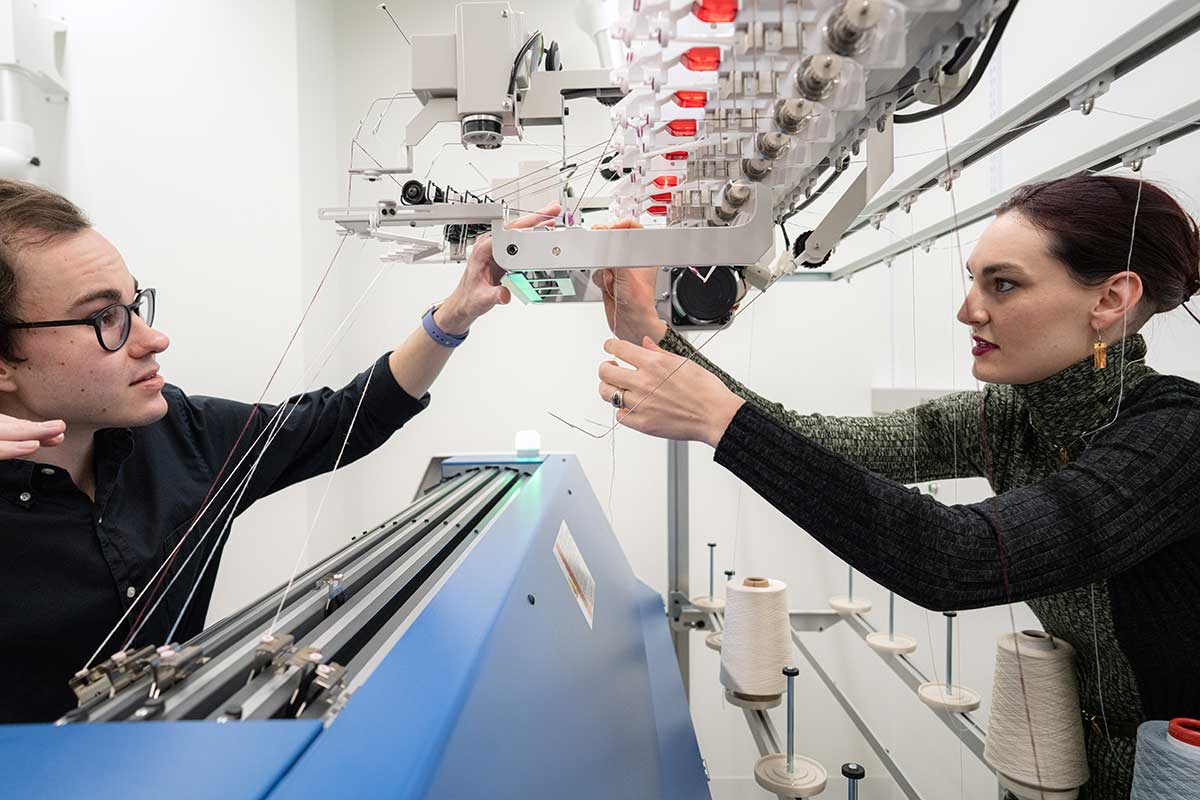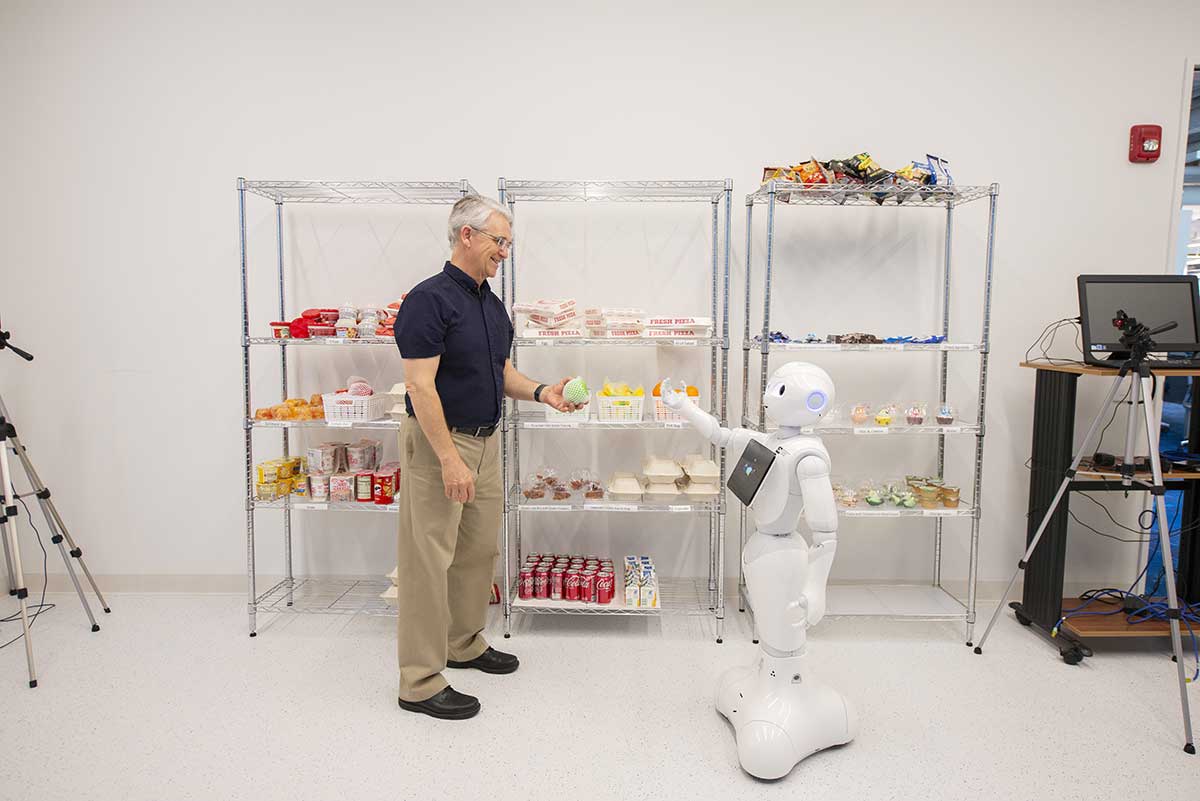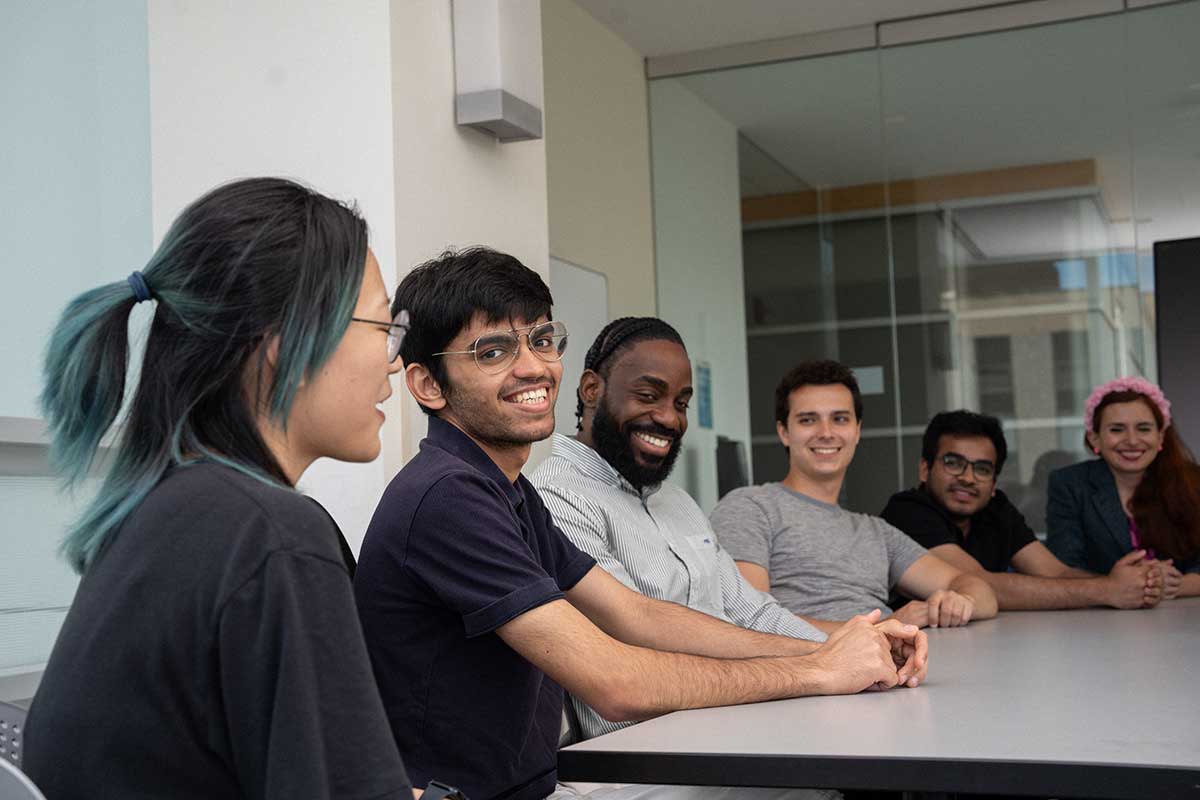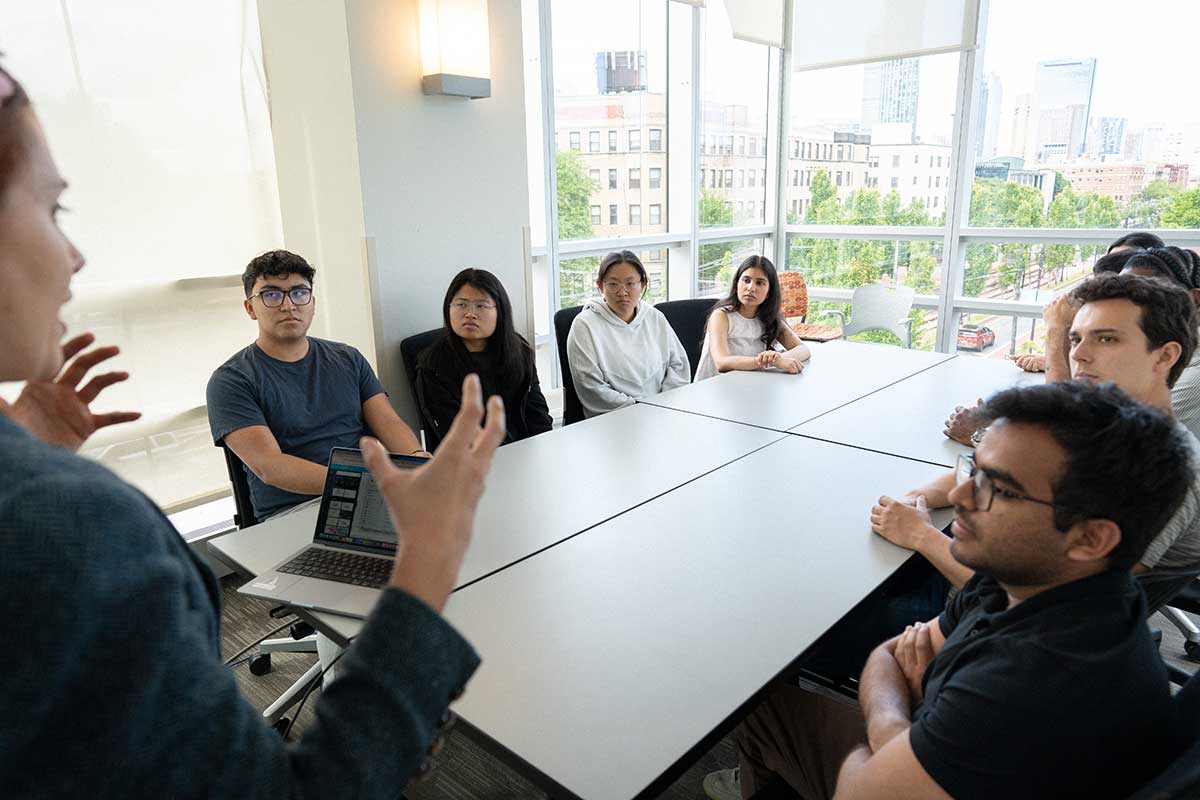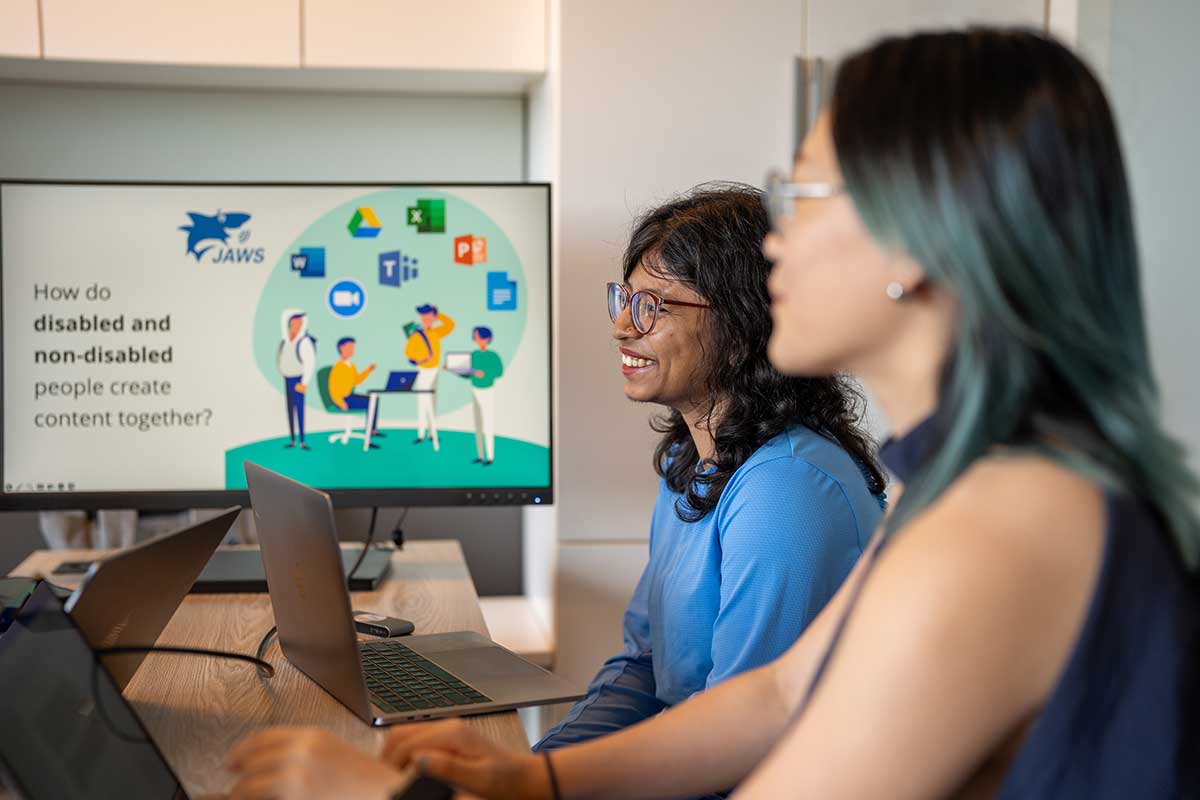
Human-Centered Computing at Khoury College of Computer Sciences
Bridging the gap between people and technology
Computer science research in human-centered computing focuses on understanding people and designing new technologies that meets their needs. Researchers study how we work with our devices — computers, smartphones, speakers, appliances, and vehicles — and how that work changes when embedded in networks and systems. Such research provides insights about people, technology, and systems that impact how future systems to support work, play, health, and communication are designed.
At Khoury College of Computer Sciences, researchers study how to make such interactions effective, safe, and ethical. This entails developing and testing interfaces, device sensors (for fitness and other apps), data visualization tools, and the digital data that fills our lives.
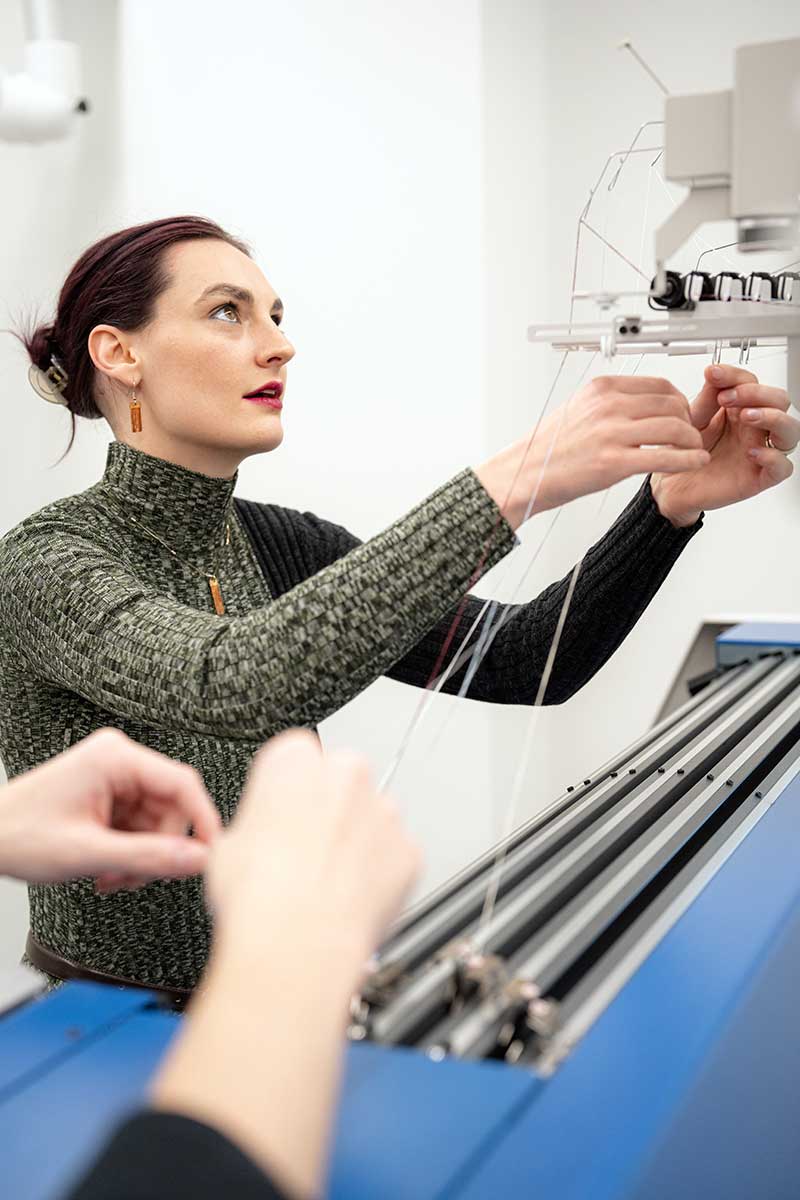
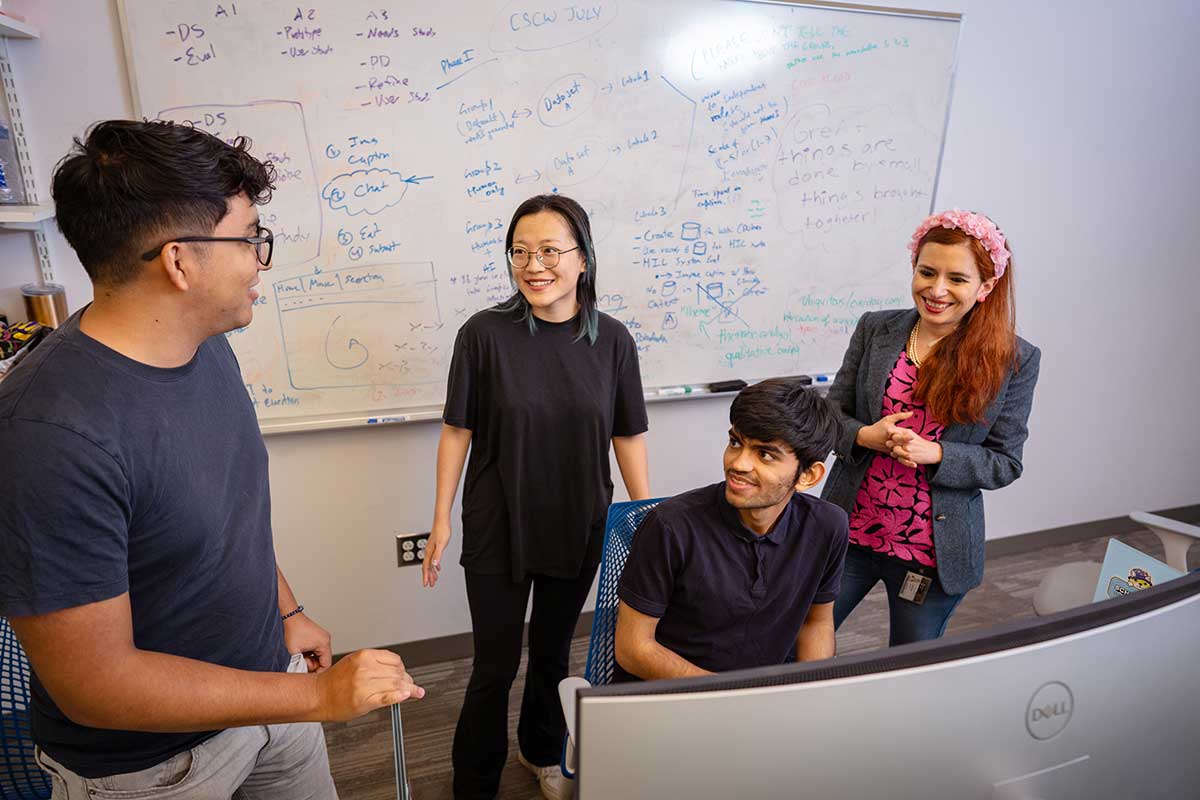
Revolutionizing the way we interact with technology
By improving human interaction with computers — making it more intuitive, efficient, enjoyable, and ethical — research in human-centered computing has positive impacts on interfaces, usability, and user experience, including making technologies that are inclusive and accessible to all users. This field also fuels the development of cutting-edge technologies, such as virtual and augmented reality devices and experiences, and is revolutionizing the way we interact with technology. This research also is critical to developing AI agents that have the potential to revolutionize health care, education, and training.
Ethical and social impacts of human-centered computing are an important area of research as well, addressing such issues such accountability, privacy, security, bias, equity of access, and how to shape policies on the responsible use of computer technology.
Sample research areas
- Advanced sensing and natural language processing
- Automatic detection of human behavior and context
- Data visualization tools and methods to communicate insight and support new scientific discovery
- Prototyping and testing new methods for assessing user experience
- New methods for using citizen science and crowdsourcing
- Development of conversational agents that educate, counsel, and persuade users
- Audit and critique of deployed socio-technical systems to understand if they are fair, unbiased, and ethical
Domains of interest
- Human-centered computing
- Personal health informatics
- User interface and User experience (UI and UX)
- Accessibility
- Gaming
- Data visualization
- Virtual reality
- Digital civics
- The future of work
- Human-robot interaction
- Social networks
- Human-centered computing and security
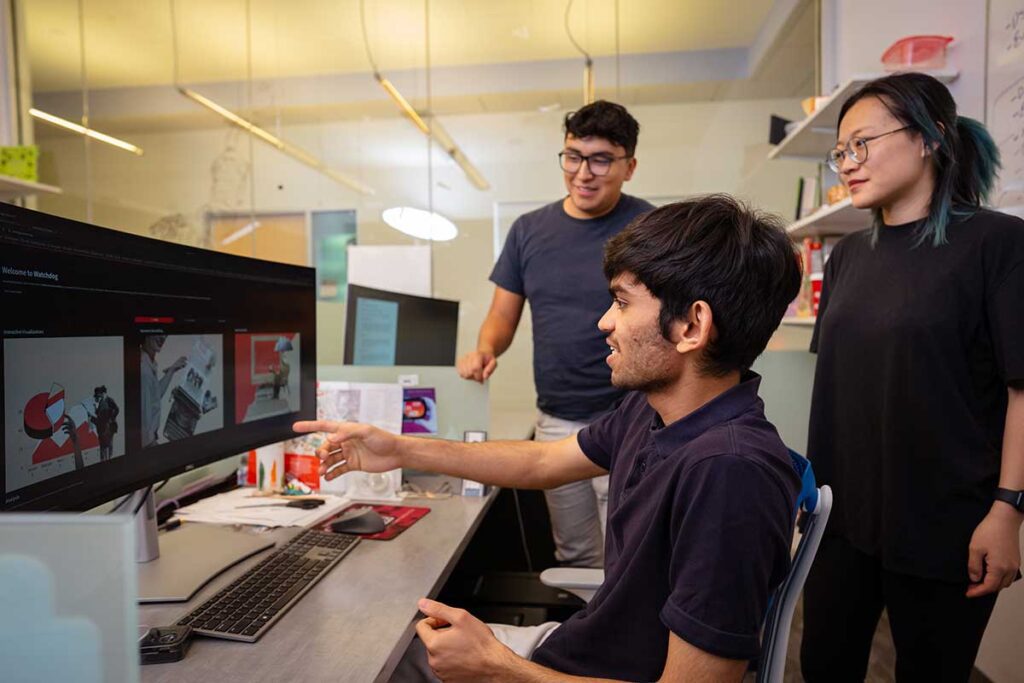
Khoury researchers: At the forefront
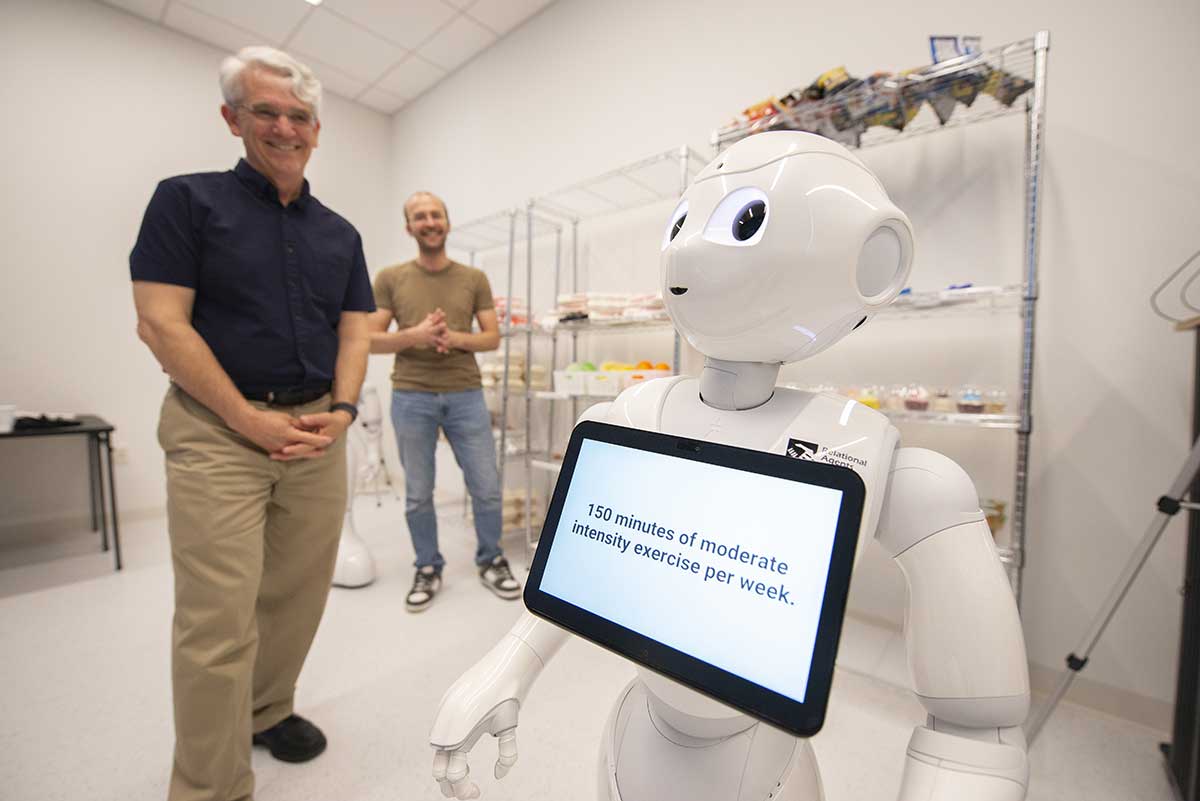
Current project highlights
Recent research publications
No More Angry Birds: Investigating Touchscreen Ergonomics to Improve Tablet-Based Enrichment for Parrots (proceedings of the CHI Conference on Human Factors in Computing Systems, 2024)
Authors: Rebecca Kleinberger, Jennifer Kunha, Megan McMahon, Ilyena Hirskyj-Douglas
Khoury and CAMD researchers are pushing the frontiers of gaming into the animal realm by developing custom tablet games for pet birds. This paper describes a study with 20 pet parrots using a custom-made application to collect data on how the birds use touchscreens and develop more adapted interfaces for animals.
Talk2Care: An LLM-based Voice Assistant for Communication between Healthcare Providers and Older Adults
Authors: Ziqi Yang, Xuhai Xu, Bingsheng Yao, Ethan Rogers, Shao Zhang, Stephen Intille, Nawar Shara, Guodong Gordon Gao, Dakuo Wang
Khoury researchers tackled the challenge of providing health information to seniors, something that often happens over the phone. The result is Talk2Care, a system that uses AI to facilitate communication between older adults and healthcare providers.
FibeRobo: Fabricating 4D Fiber Interfaces by Continuous Drawing of Temperature Tunable Liquid Crystal Elastomers
Authors: Jack Forman, Ozgun Kilic Afsar, Sarah Nicita, Rosalie Hsin-Ju Lin, Liu Yang, Megan Hofmann, Akshay Kothakonda, Zachary Gordon, Cedric Honnet, Kristen Dorsey, Neil Gershenfeld, Hiroshi Ishii
Khoury researchers have prototyped FibeRobo, a new type of temperature sensitive element that can be embedded in textiles, opening the possibility for interactive garments, comfortable health monitoring devices, as well as potential applications in robotics and design.
A Culturally Aware Tool for Crowdworkers: Leveraging Chronemics to Support Diverse Work Styles (proceedings of the ACM Conference on Computer-Supported Cooperative Work 2024 (CSCW))
Authors: Carlos Toxtli, Christopher Curtis, Saiph Savage
Khoury researchers are studying how to design culturally aware AI tools that better support the human annotators who power AI systems. By understanding cultural contexts, they aim to create AI that collaborates more effectively and ethically with diverse teams, enhancing both the accuracy and fairness of AI technologies and the labor produced with AI.
Related labs and groups
Faculty members
-

Timothy W. Bickmore
Timothy Bickmore is a professor at Khoury College and the director of the Relational Agents Group. He develops and evaluates computer agents that emulate face-to-face interactions between health providers and patients, with human–computer interaction, natural language processing, and animation playing a role.
-
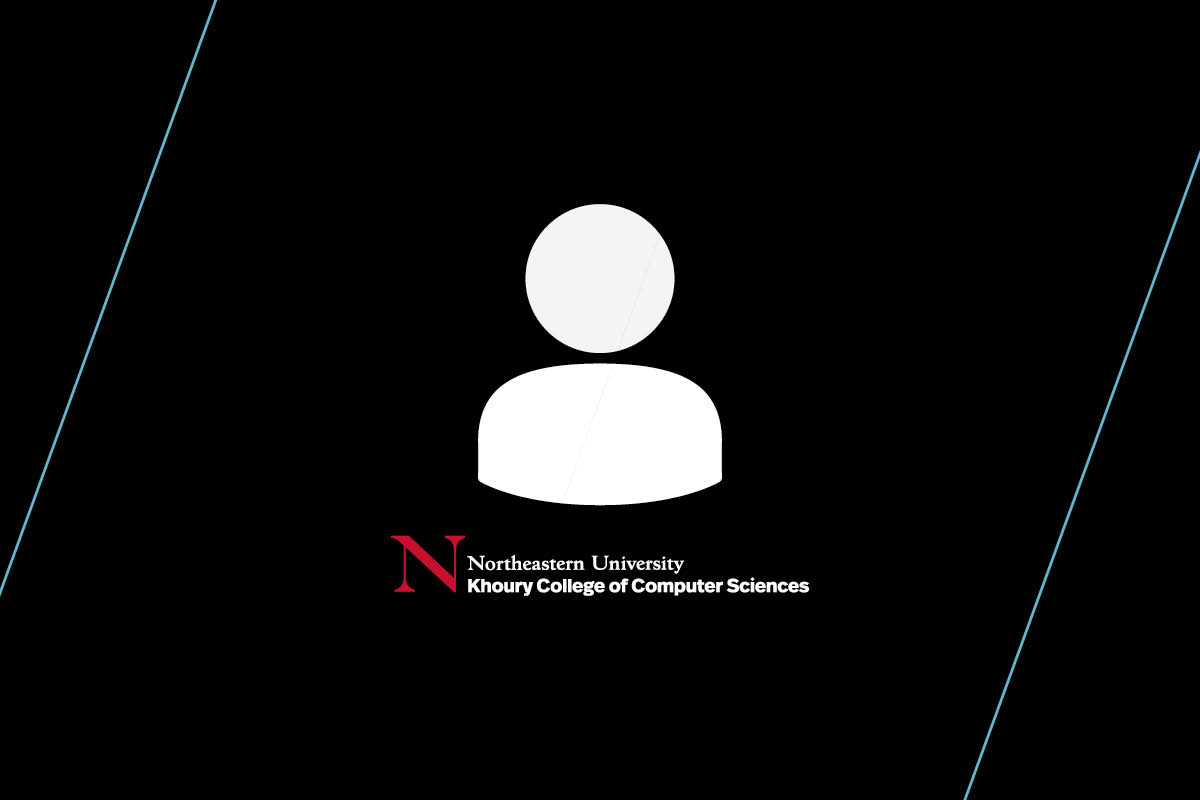
Kathleen (Katie) Creel
Kathleen Creel is an associate professor with joint appointments in the College of Social Sciences and Humanities and Khoury College. Her research explores the moral, political, and epistemic implications of machine learning as it is used in automated decision-making and in science.
-
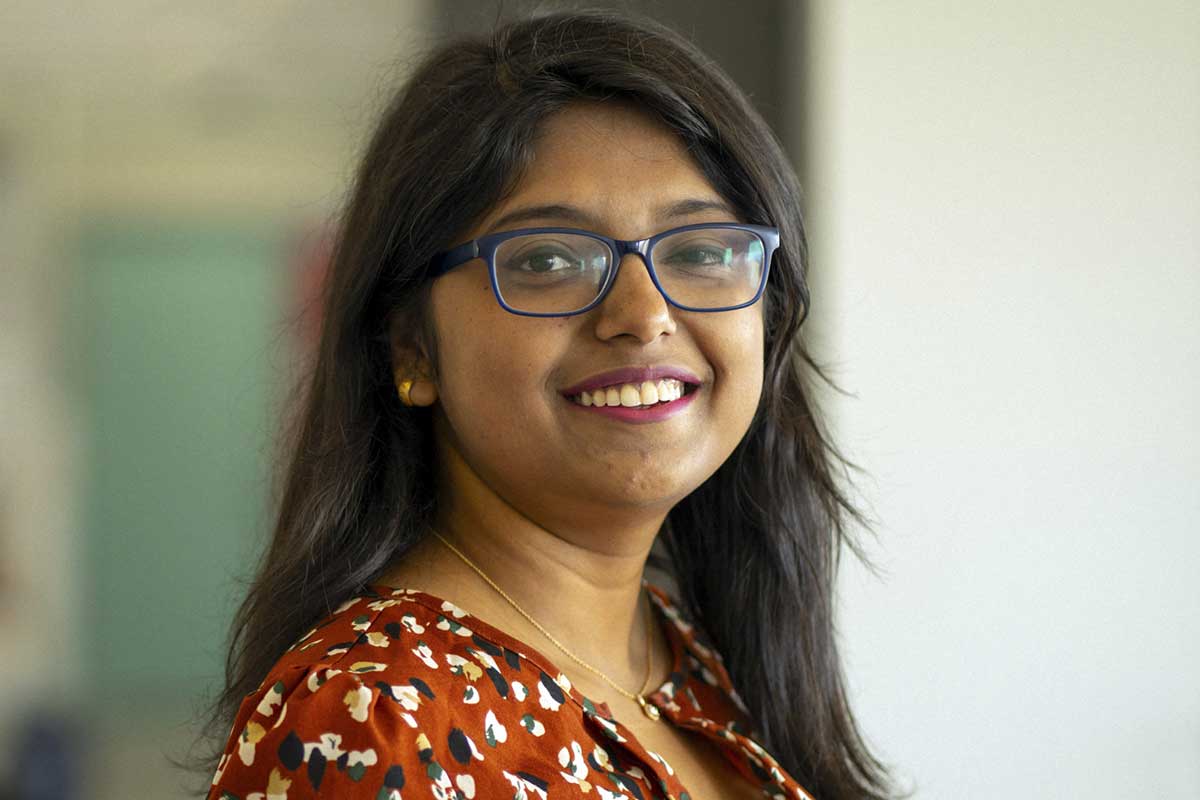
Maitraye Das
Maitraye Das is an assistant professor at Khoury College, jointly appointed with the College of Arts, Media and Design. Her human–computer interaction research blends interviews, field work, and iterative design to bridge equity and accessibility gaps in education, employment, and creative work.
-

Michael Ann DeVito
Michael Ann DeVito is an assistant professor at Khoury College, jointly appointed with the College of Arts, Media and Design. Her AI and machine learning research aims to address inequalities and unfairness toward marginalized populations through inclusive, equitable design.
-
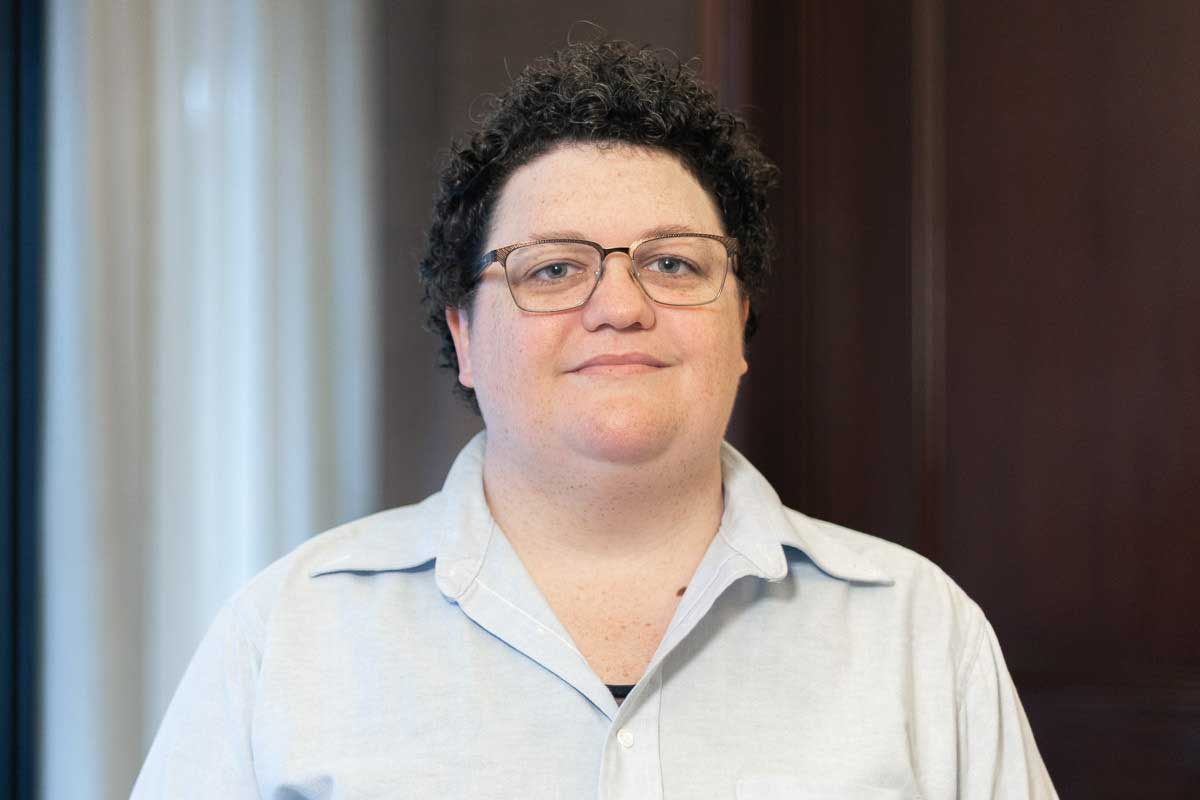
Brianna Dym
Brianna Dym is an assistant teaching professor at Khoury College, where she teaches human–computer interaction and programming design. She is driven to broaden participation in computing and ensure that everyone benefits from technology; to achieve this, she has reimagined curricula and fostered community among LGBTQ students.
-
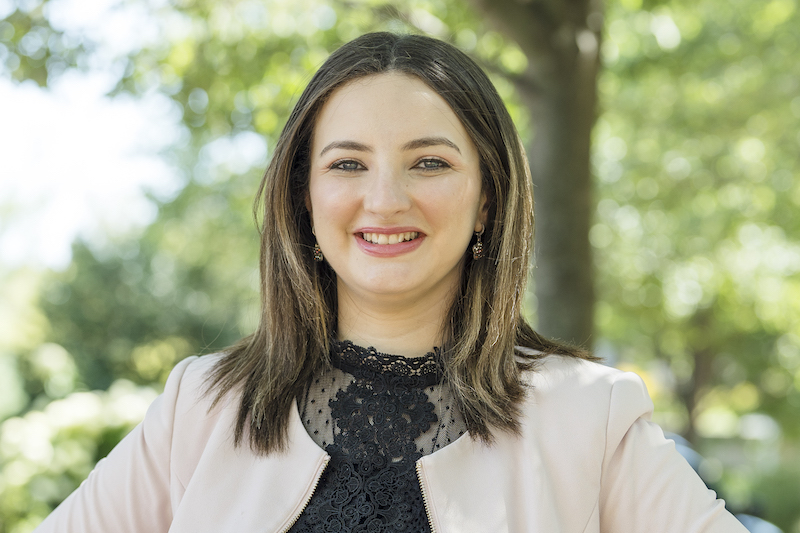
Mai ElSherief
Mai ElSherief is an assistant professor at Khoury College. Her research strives to minimize harm and improve prosocial behavior online by detecting and mitigating biases in natural language processing systems.
-

Don Fallis
Don Fallis is a professor at Khoury College, jointly appointed with the College of Social Sciences and Humanities. His research blends epistemology, philosophy of information, and philosophy of mathematics, and focuses primarily on adversarial epistemology — how people learn in a disinformation-filled world.
-

Matthew Goodwin
Matthew Goodwin is a professor at Khoury College, jointly appointed with the Bouvé College of Health Sciences. He works with people on the autism spectrum to develop and evaluate behavioral assessment and intervention technologies, enabling caregivers to more capably and compassionately assist their loved ones.
-
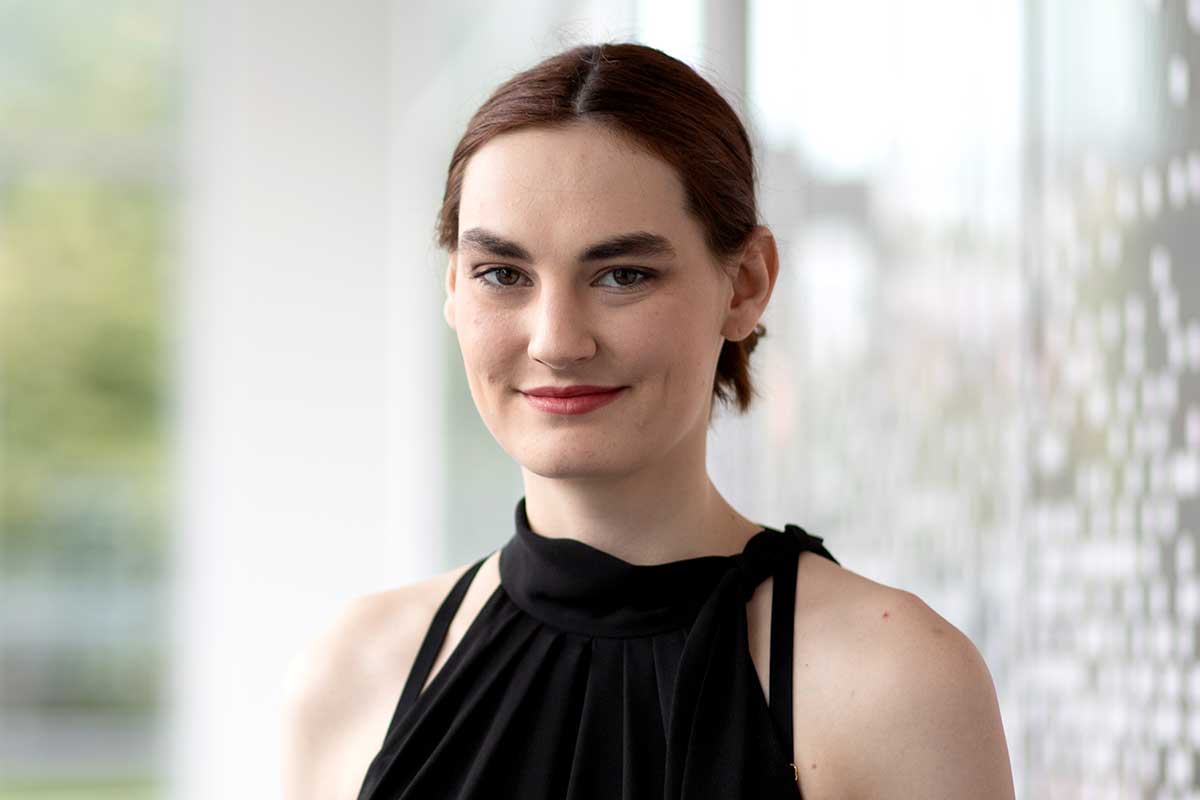
Megan Hofmann
Megan Hofmann is an assistant professor at Khoury College. Her human–computer interaction and personal health informatics research often centers around the development and evaluation of accessible tools, including for people with disabilities.
-

Stephen Intille
Stephen Intille is a professor at Khoury College, jointly appointed with the Bouvé College of Health Sciences. Using ideas from ubiquitous computing, user-interface design, pattern recognition, behavioral science, and preventative medicine, he develops technologies that measure and motivate health-related behaviors.
-
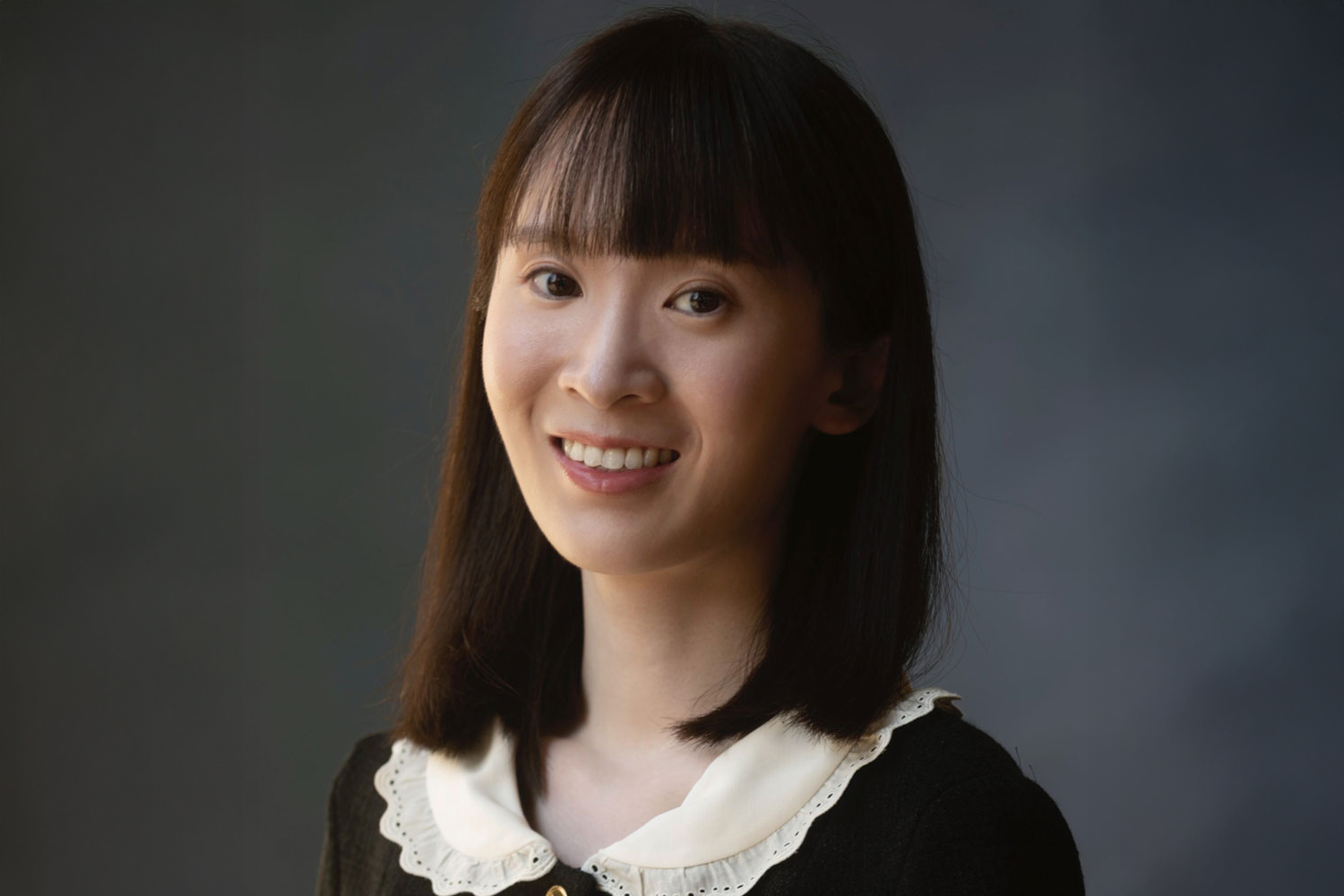
Chenyan Jia
Chenyan Jia is an assistant professor at Khoury College, jointly appointed in the College of Arts, Media and Design. She conducts research at the intersection of human–computer interaction and mass communication, examining human-centered AI design, the influence of emerging media technologies on human attitudes, and misinformation.
-
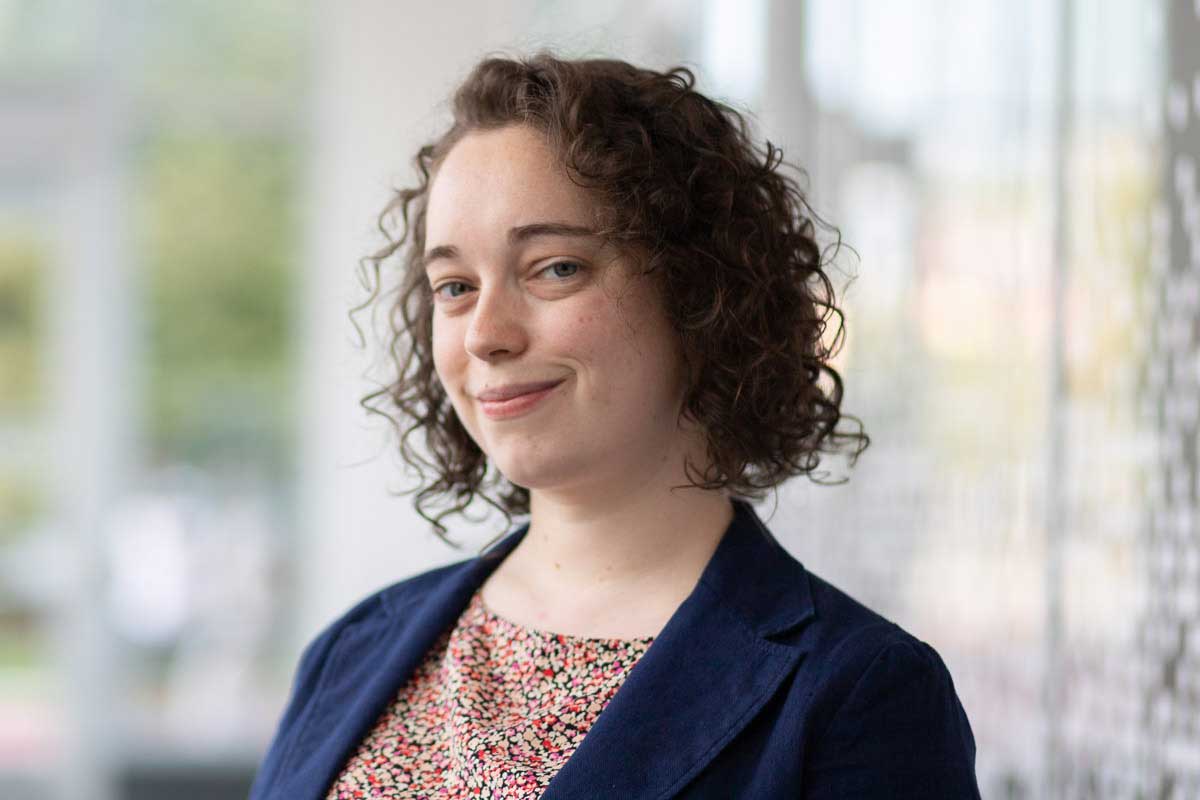
Rébecca Kleinberger
Rébecca Kleinberger is an assistant professor at Khoury College. Her research covers topics including both human- and animal-computer interaction; technological enrichment for zoo animals; voice and music technologies; and assistive technology.
-
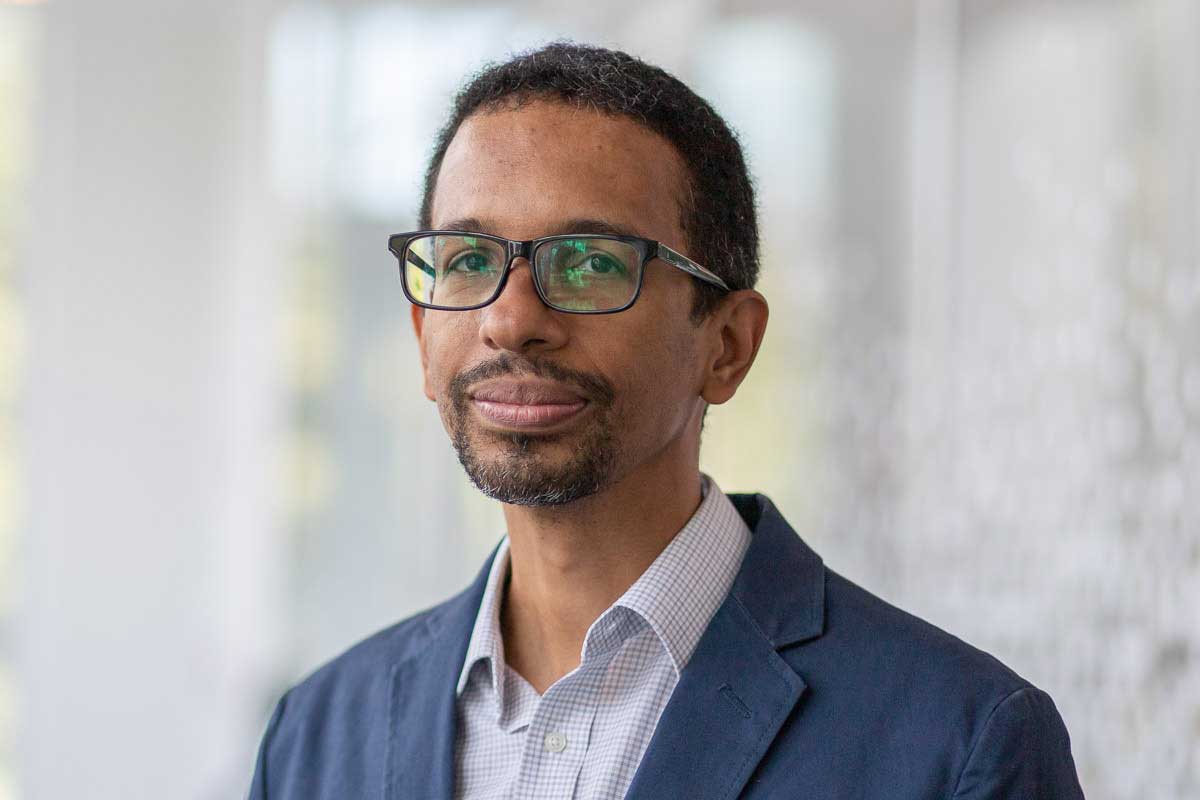
Wallace Lages
Wallace Lages is an assistant professor at Khoury College, jointly appointed with the College of Arts, Media and Design. He blends his multidisciplinary research into augmented and virtual reality with his artistic practice, which has been featured on four continents.
-

Chris Le Dantec
Christopher Le Dantec is a professor and the director of digital civics at Khoury College, jointly appointed with the College of Arts, Media and Design. His research applies human-centered computing to the intersection of digital democracy and smart cities, including the development of novel computing interfaces and data-driven capacities that support collective action.
-
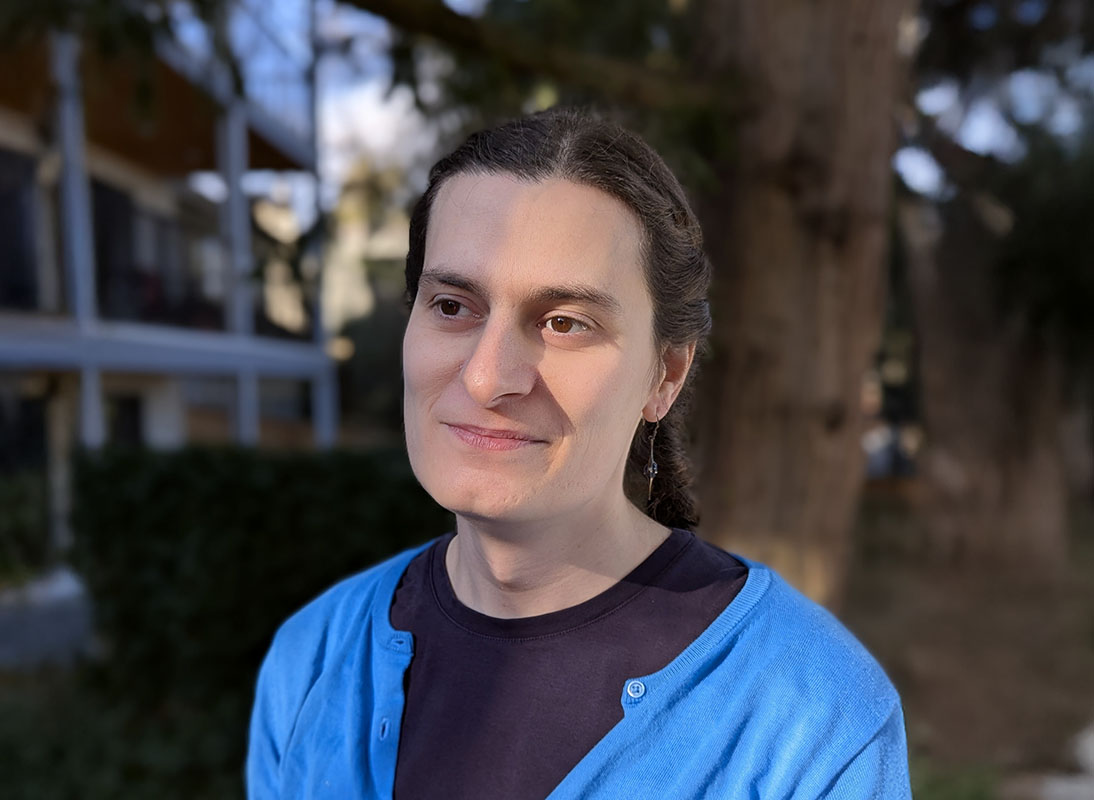
Ada Lerner
Ada Lerner is an assistant professor and the director of the undergraduate cybersecurity program at Khoury College. She researches human–computer interaction, security, and privacy.
-
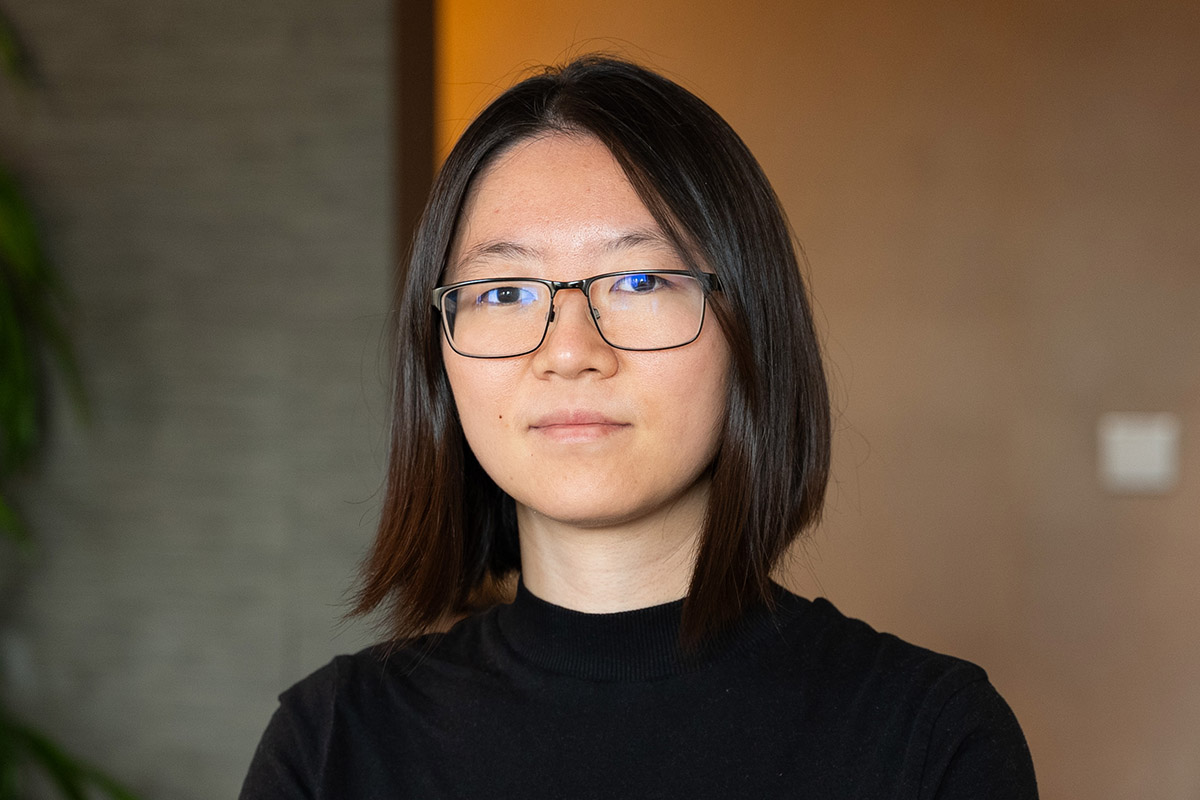
Tianshi Li
Tianshi Li is an assistant professor at Khoury College. She has sought to assist developers — even those who don’t specialize in privacy and security — to build mobile apps with native privacy support; she has also helped companies to comply with privacy, accessibility, and fairness requirements.
-

Blair MacIntyre
Blair MacIntyre is a teaching professor at Khoury College and a former principal research scientist at Mozilla. He teaches courses in computer graphics, augmented and virtual environments, ethics and privacy, and user interface software.
-
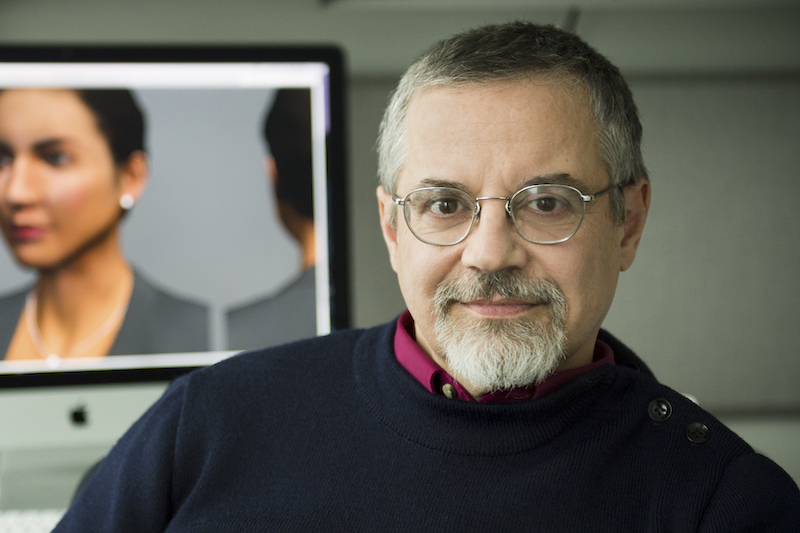
Stacy C. Marsella
Stacy Marsella is a professor at Khoury College, jointly appointed with the College of Science. His work, which is grounded in the computational modeling of human cognition, emotion, and social behavior, has applications for human behavior, health interventions, social skills training, and planning operations.
-
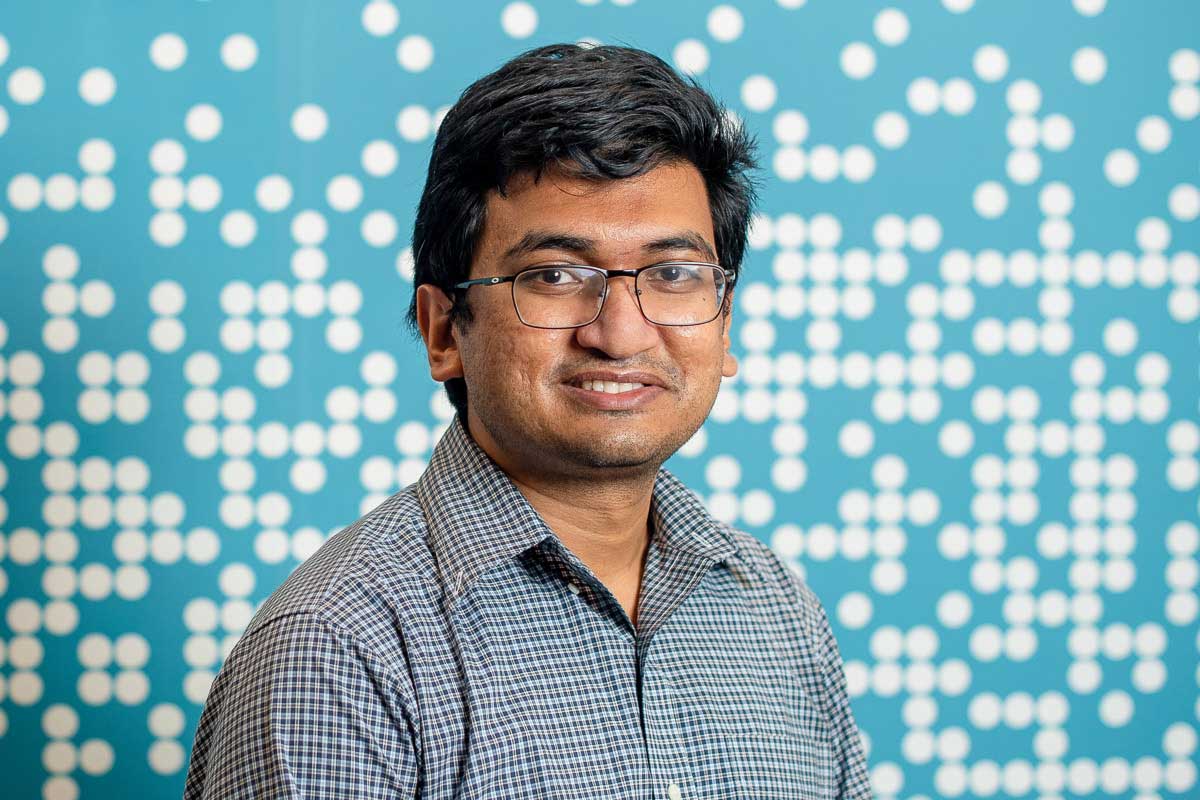
Sakib Miazi
Sakib Miazi is an assistant teaching professor at Khoury College. His research works to understand how users make privacy decisions and develop privacy-preserving tools and for ubiquitous technologies, and he teaches courses on cybersecurity, networks, and distributed systems.
-
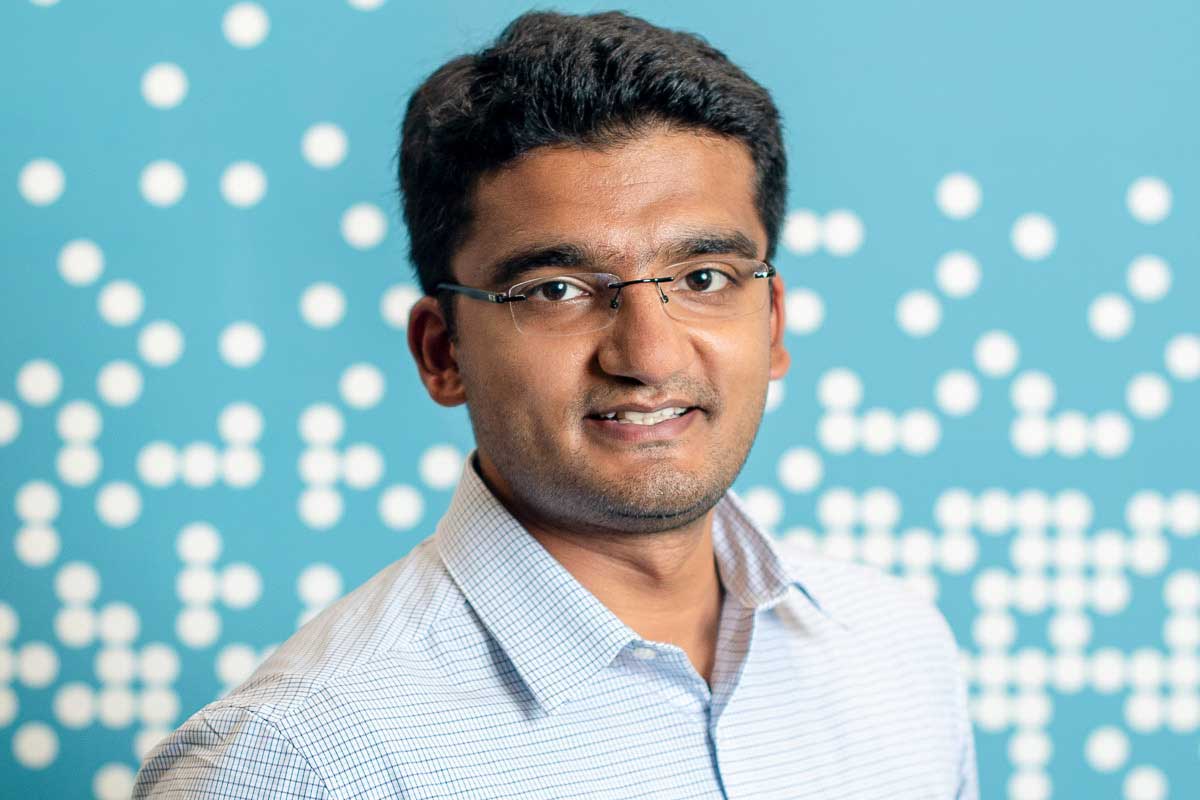
Varun Mishra
Varun Mishra is an assistant professor at Khoury College, jointly appointed with the Bouvé College of Health Sciences. His research leverages ubiquitous technologies like smartphones and wearables to enable mental and behavioral health interventions.
-
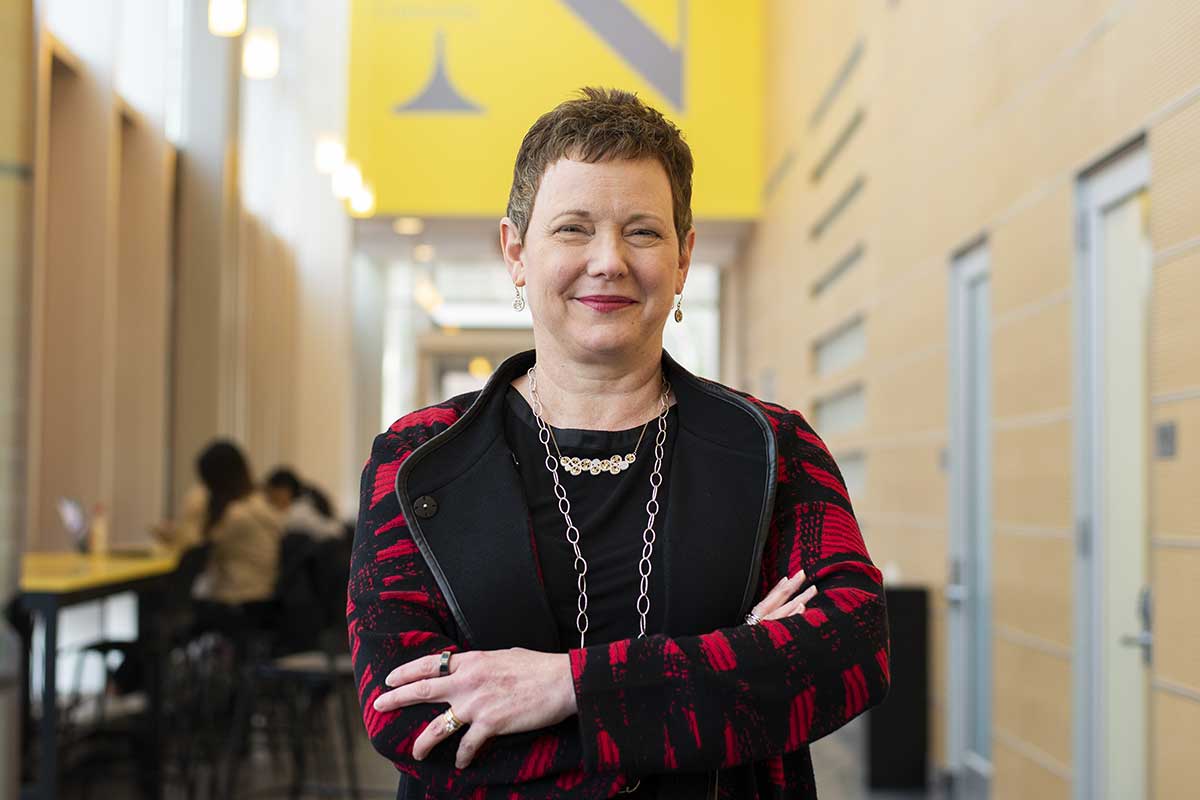
Elizabeth Mynatt
Elizabeth Mynatt is the Dean of Khoury College of Computer Sciences. She joined Northeastern University in January 2022 after a 23-year career at Georgia Institute of Technology (Georgia Tech), where she most recently served as Regents’ and Distinguished Professor in the College of Computing and executive director of the Institute of People and Technology.
-
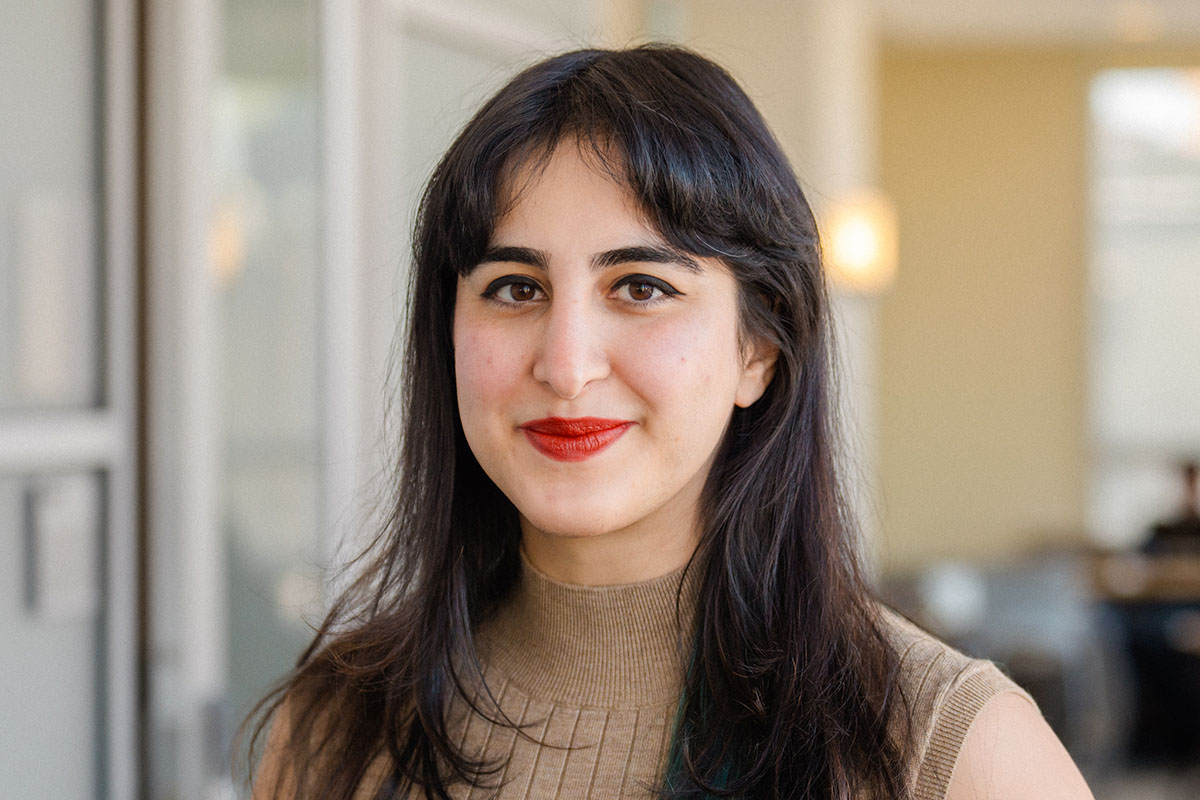
Mahsan Nourani
Mahsan Nourani is a research assistant professor at Khoury College. Her research explores how people of varying backgrounds understand and interact with AI-assisted decision-making systems and the impact those systems have on societies, with the goal of enabling human-centered and responsible AI.
-
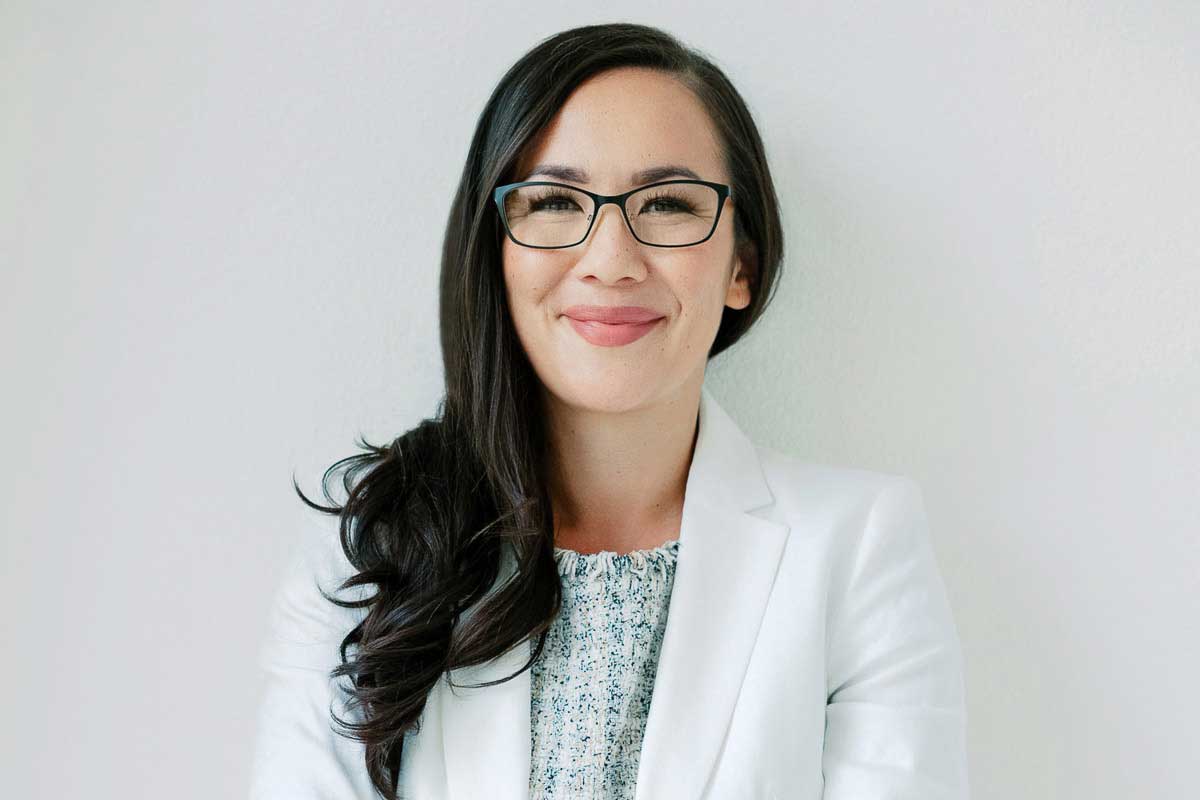
Lace Padilla
Lace Padilla is an assistant professor at Khoury College, jointly appointed with the College of Science. She combines cognitive, neural, and computer sciences to study how people process data visualizations and how those visualizations can communicate more accurately and effectively.
-

Rupal Patel
Rupal Patel is a professor at Khoury College, jointly appointed with the Bouvé College of Health Sciences. By analyzing speech production and motor control, then implementing AI and other computation techniques, she designs and develops assistive communication technologies for neurotypical and impaired speakers alike.
-
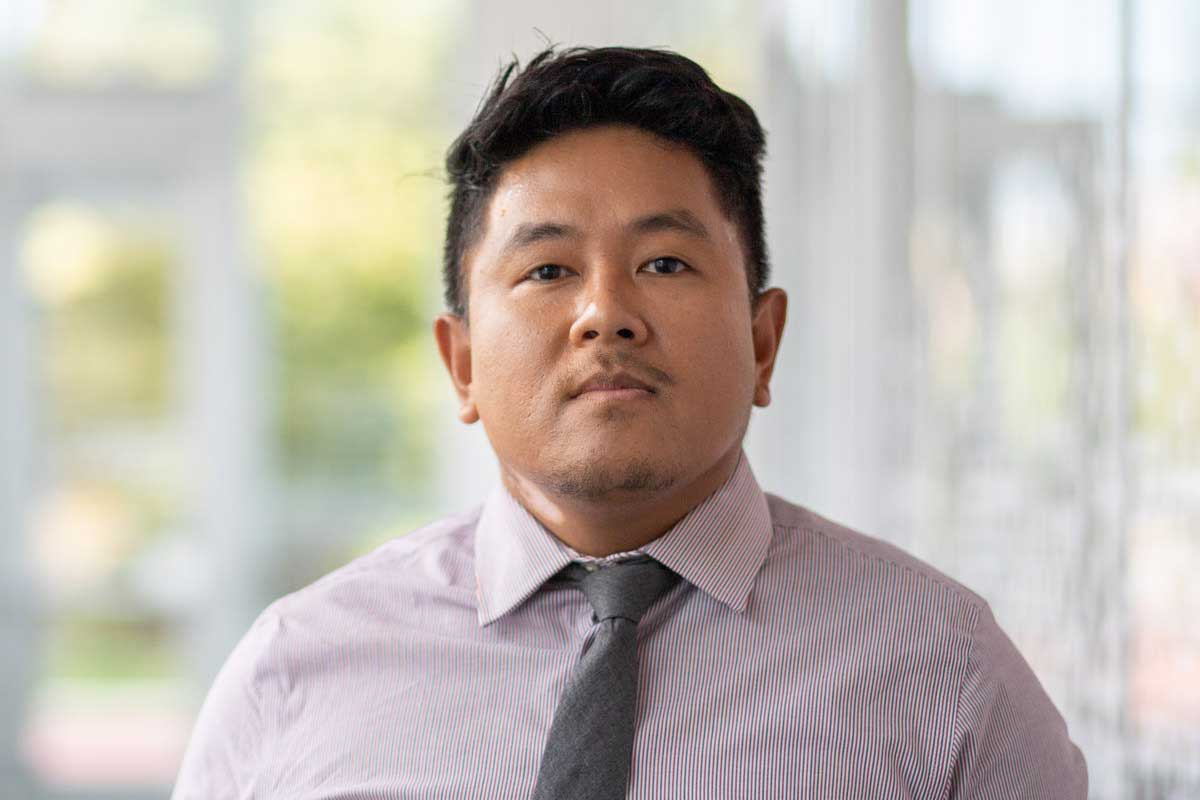
Herman Saksono
Herman Saksono is an assistant professor at Khoury College, jointly appointed with the Bouvé College of Health Sciences. His research on human–computer interaction and digital health equity aims to encourage positive behaviors and catalyze social interactions around health, namely through a trio of health apps he designed and developed.
-
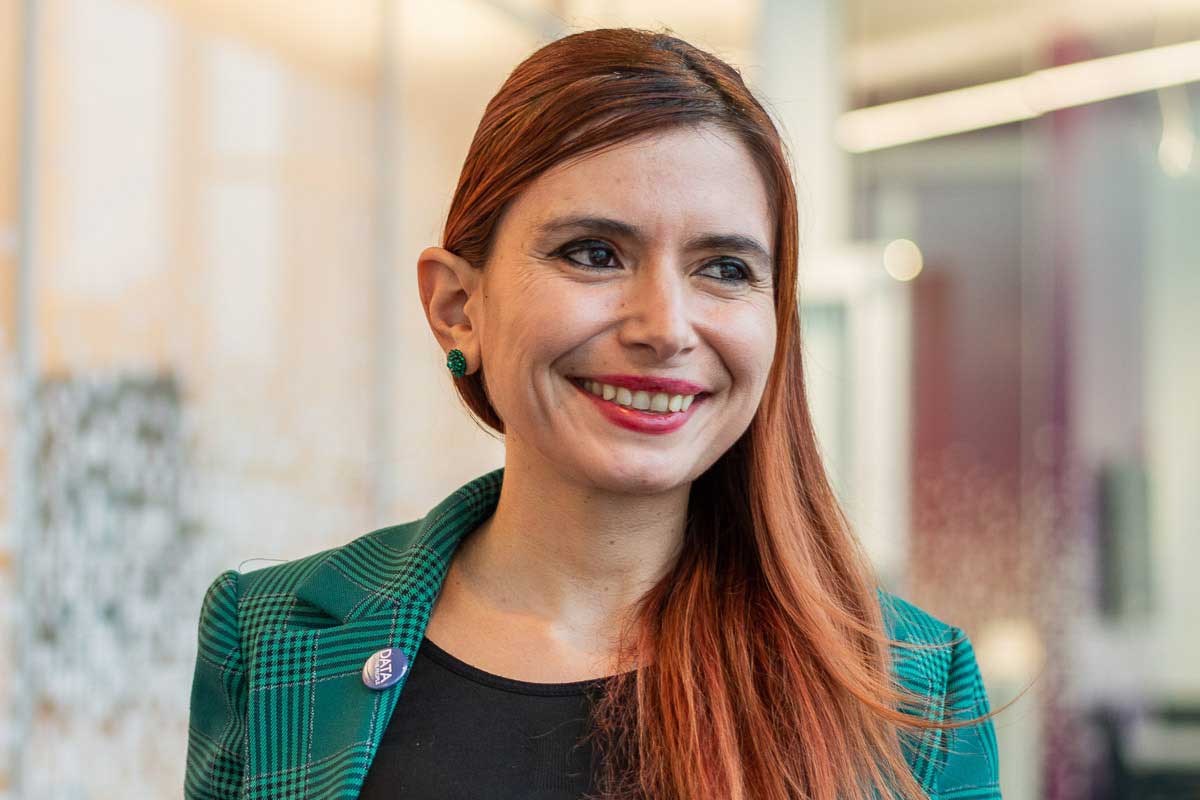
Saiph Savage
Saiph Savage is an assistant professor and director of the Civic A.I. Lab at Khoury College. Her research focuses on creating intelligent civic technology to organize collective action for change, which includes battling misinformation and empowering gig and rural workers to access better jobs.
-

Jessica Staddon
Jessica Staddon is a professor of the practice at Khoury College. Her research explores AI safety, security, and privacy, and her role with Khoury College encompasses elements of teaching, research, and partnership development.
-
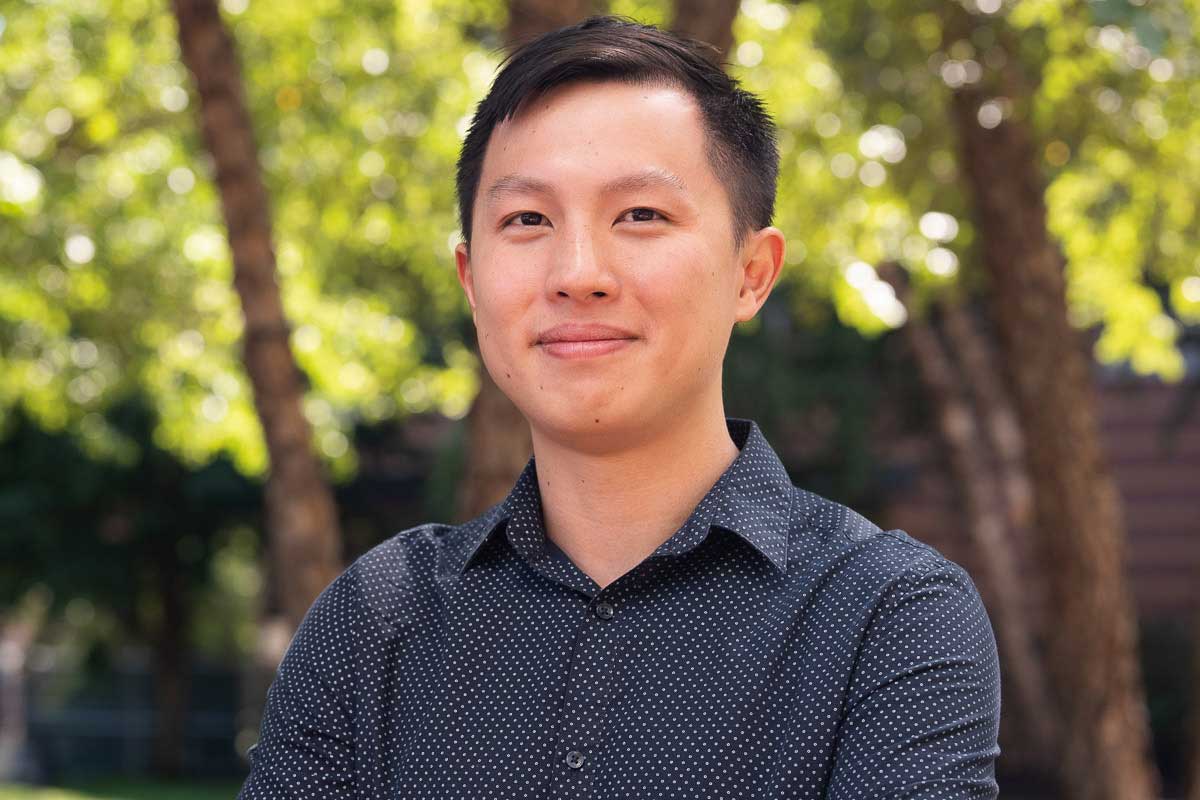
Zhi Tan
Zhi Tan is an assistant professor at Khoury College. He studies how robots interact with the world and how they can be integrated with human users, each other, and intelligent systems.
-
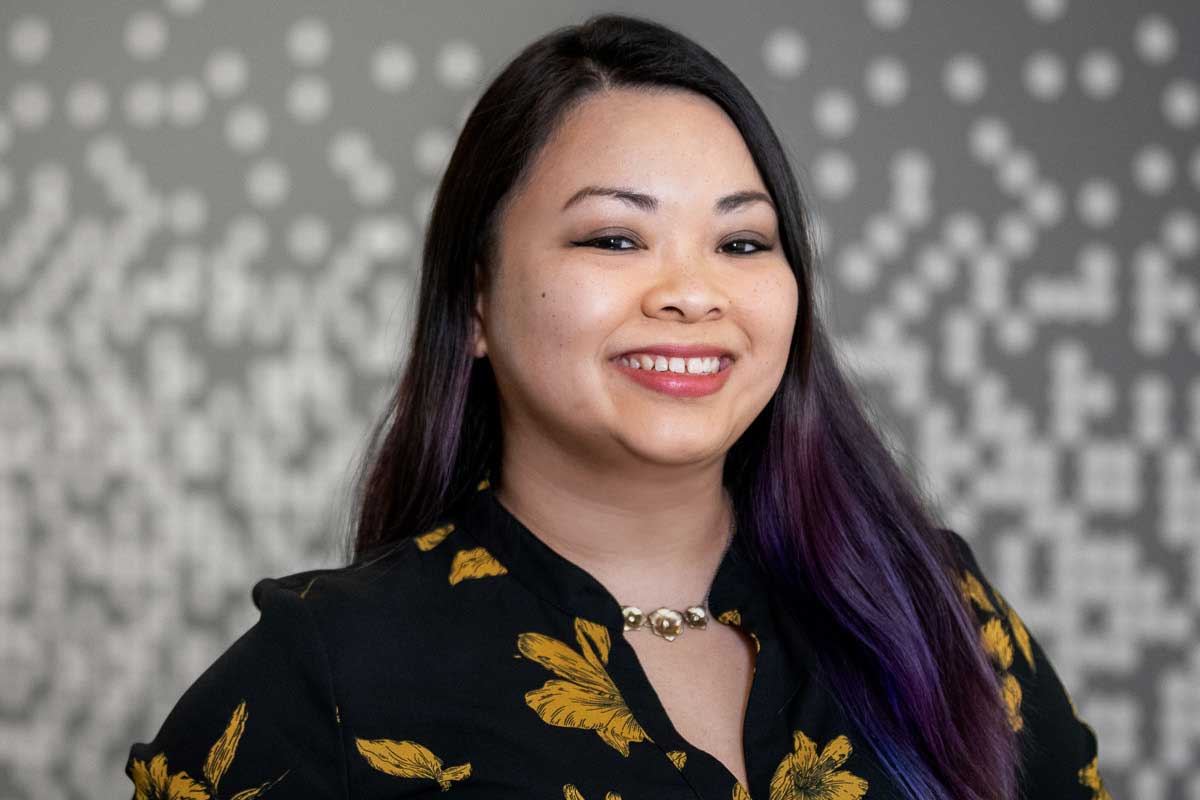
Alexandra To
Alexandra To is an assistant professor at Khoury College, jointly appointed with the College of Arts, Media and Design. Her human–computer interaction research aims to uplift marginalized people, allowing them to access joy, play, and justice through tech.
-
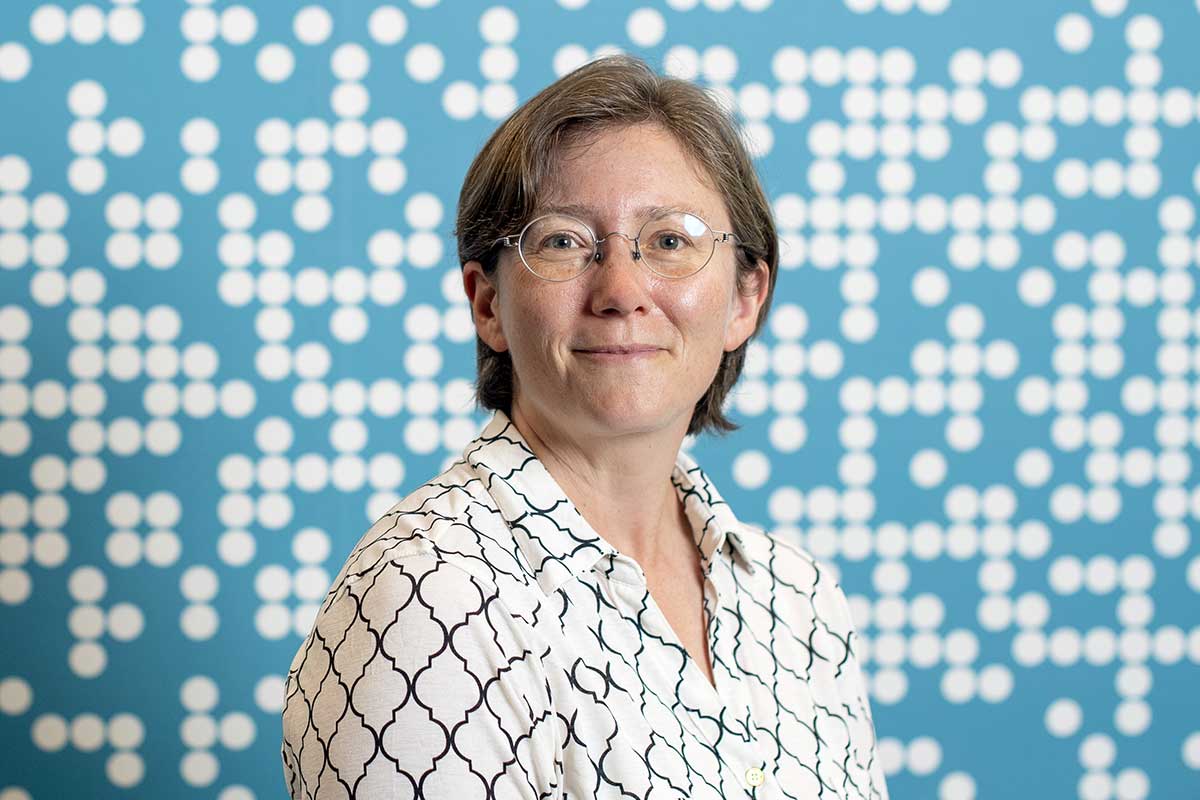
Melanie Tory
Melanie Tory is a professor of the practice and director of data visualization research at Khoury College. She previously worked as a research scientist for Tableau Software.
-
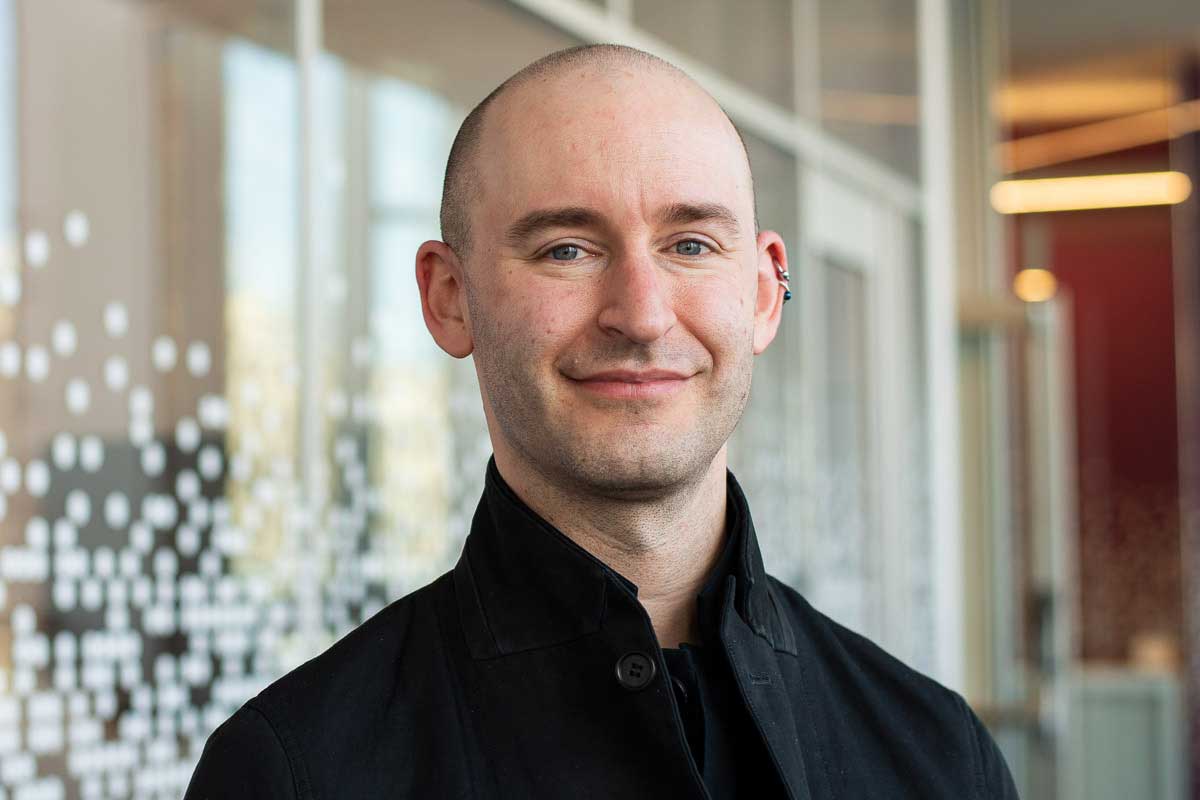
Christo Wilson
Christo Wilson is an associate professor and associate dean of undergraduate programs at Khoury College. His research, which draws on computational, political, and economic methods, delves into the data, security, and privacy issues at the heart of our internet use.
-
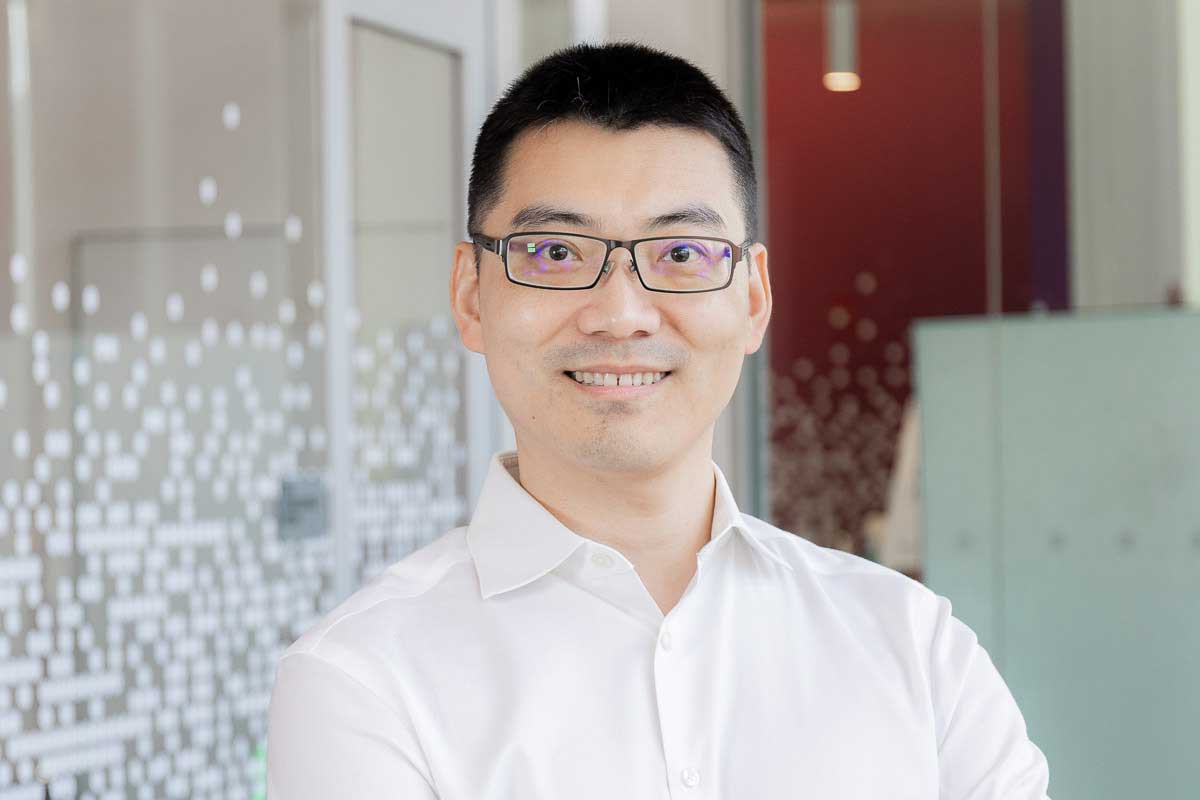
Dakuo Wang
Dakuo Wang is an associate professor at Khoury College. He is also an ACM Distinguished Speaker and gives talks around the world on his research into human-centered AI (HCAI) systems.
-
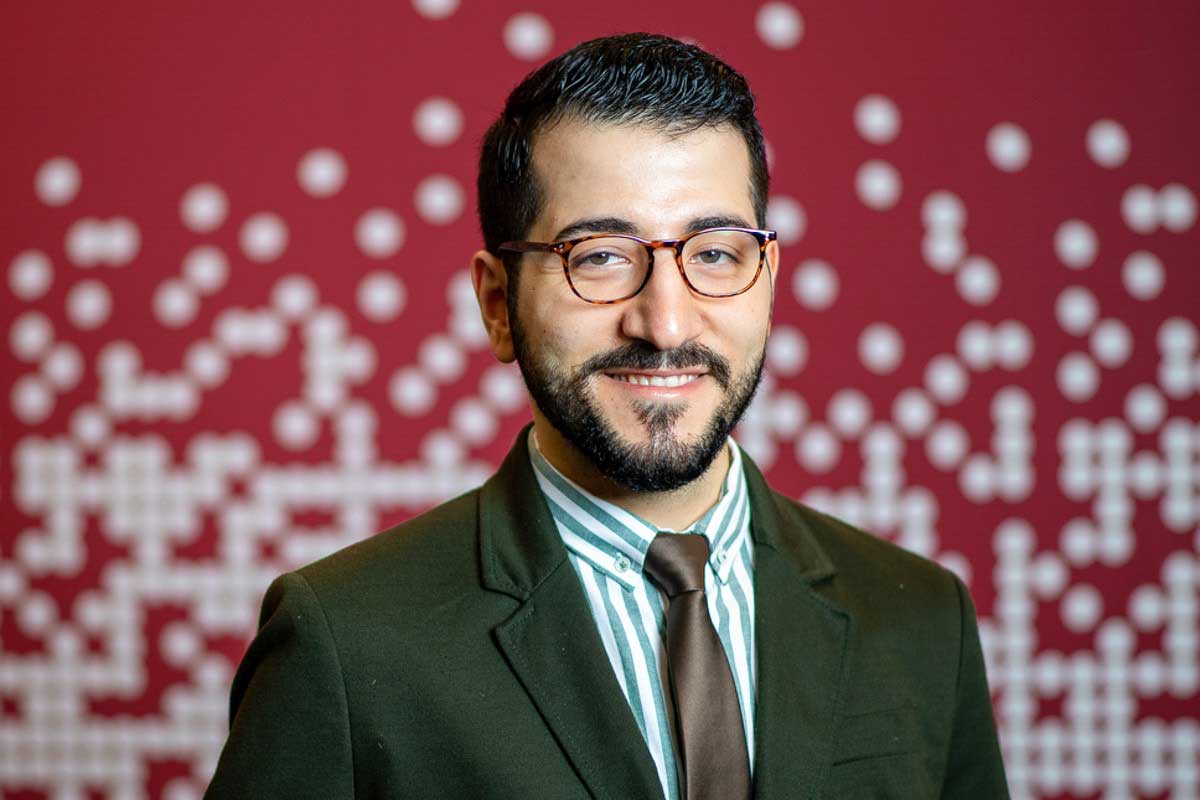
Caglar Yildirim
Caglar Yildirim is an associate teaching professor at Khoury College. His research combines human–computer interaction, mixed reality, data visualization, games, and applied machine learning.
-
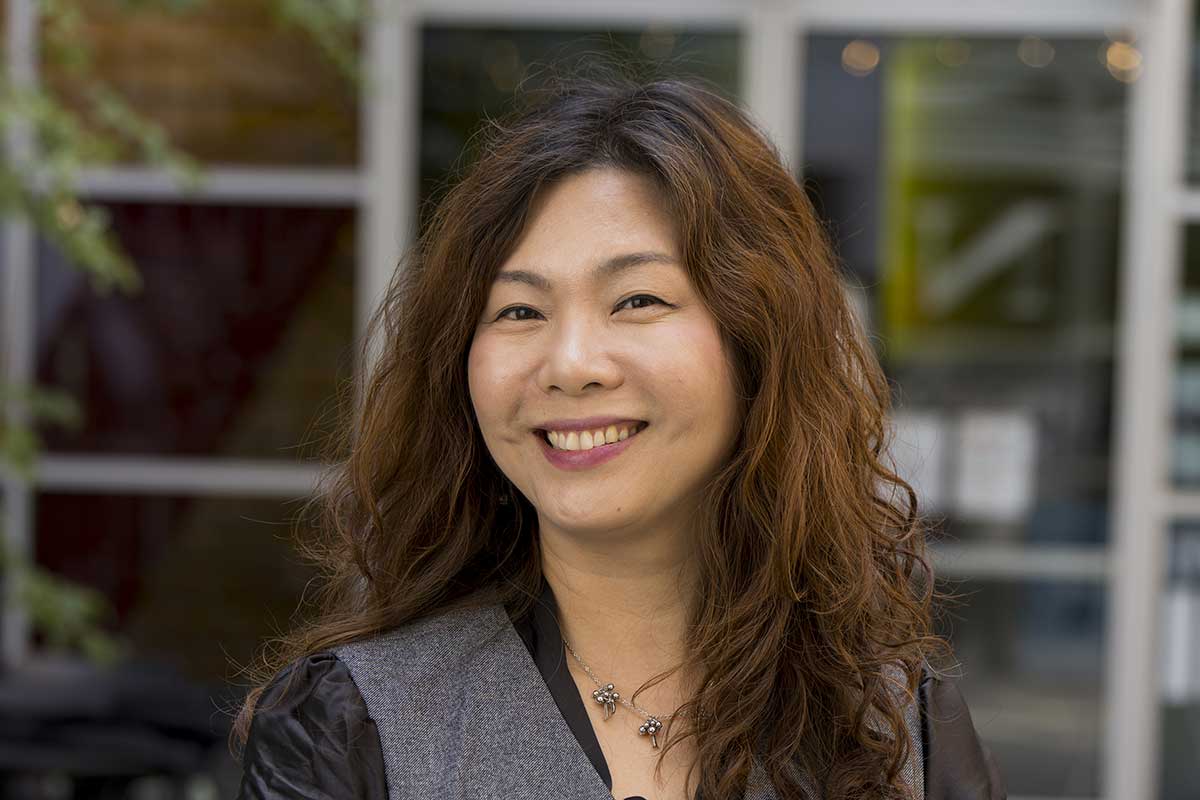
Ilmi Yoon
Ilmi Yoon is a teaching professor at Khoury College, and a director of computing programs at the Silicon Valley campus. As both a teacher with two decades of experience at San Francisco State and as a researcher studying human-centered AI, video accessibility, and socially responsible computing, Yoon focuses on engaging underrepresented and marginalized groups in computing and computing education.
